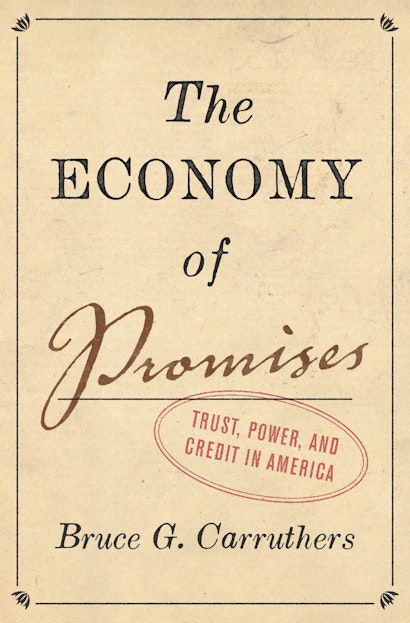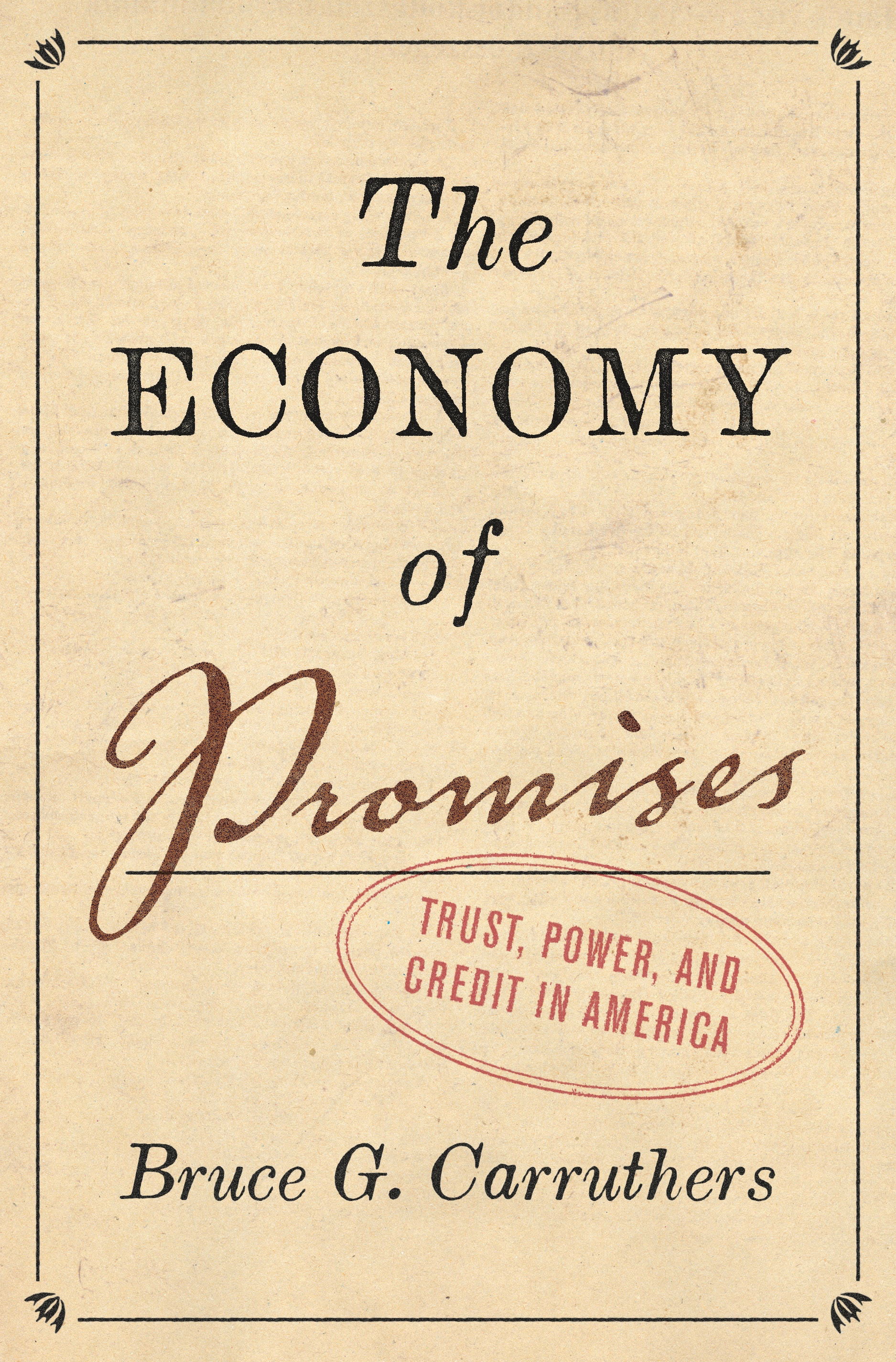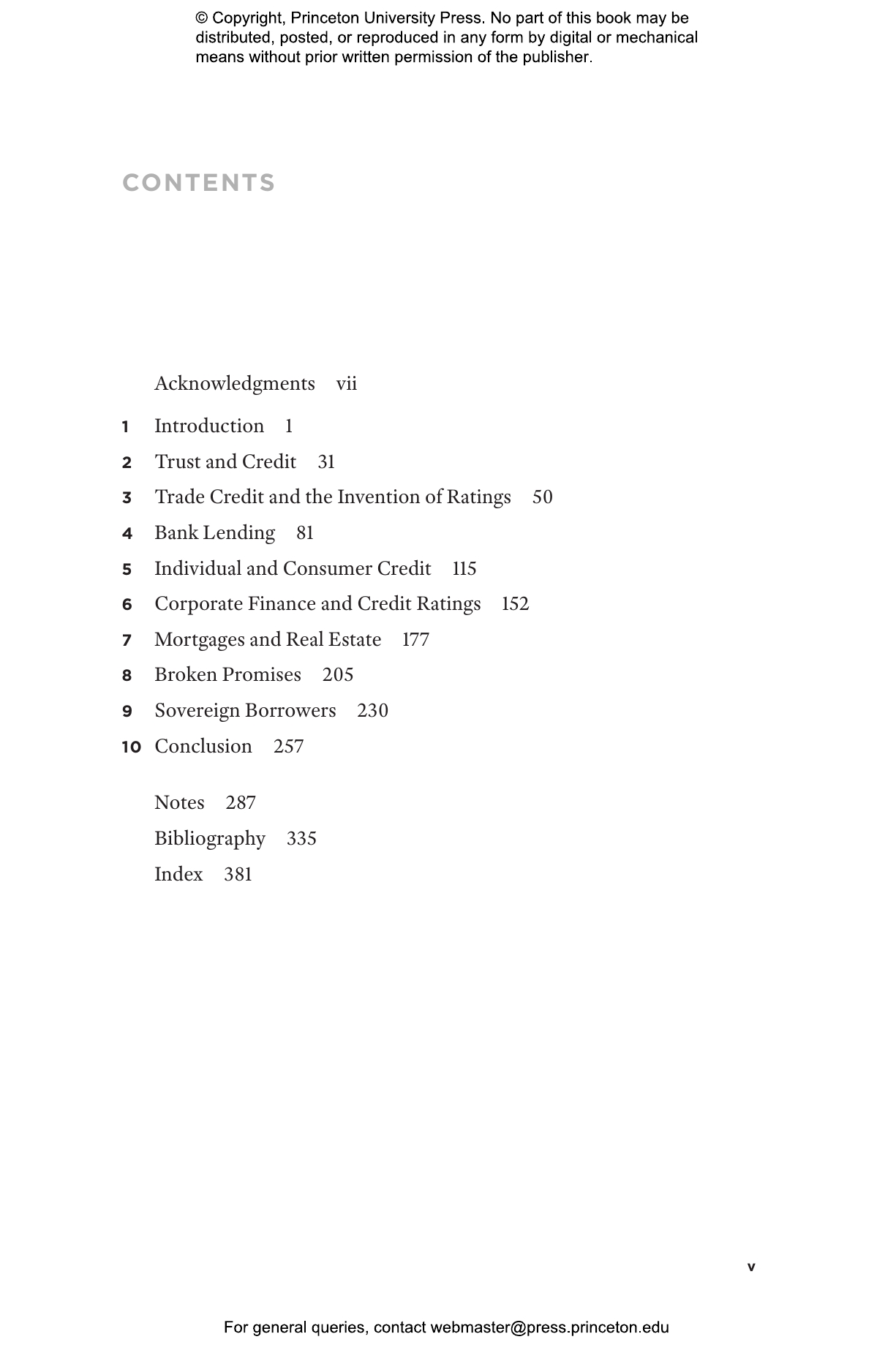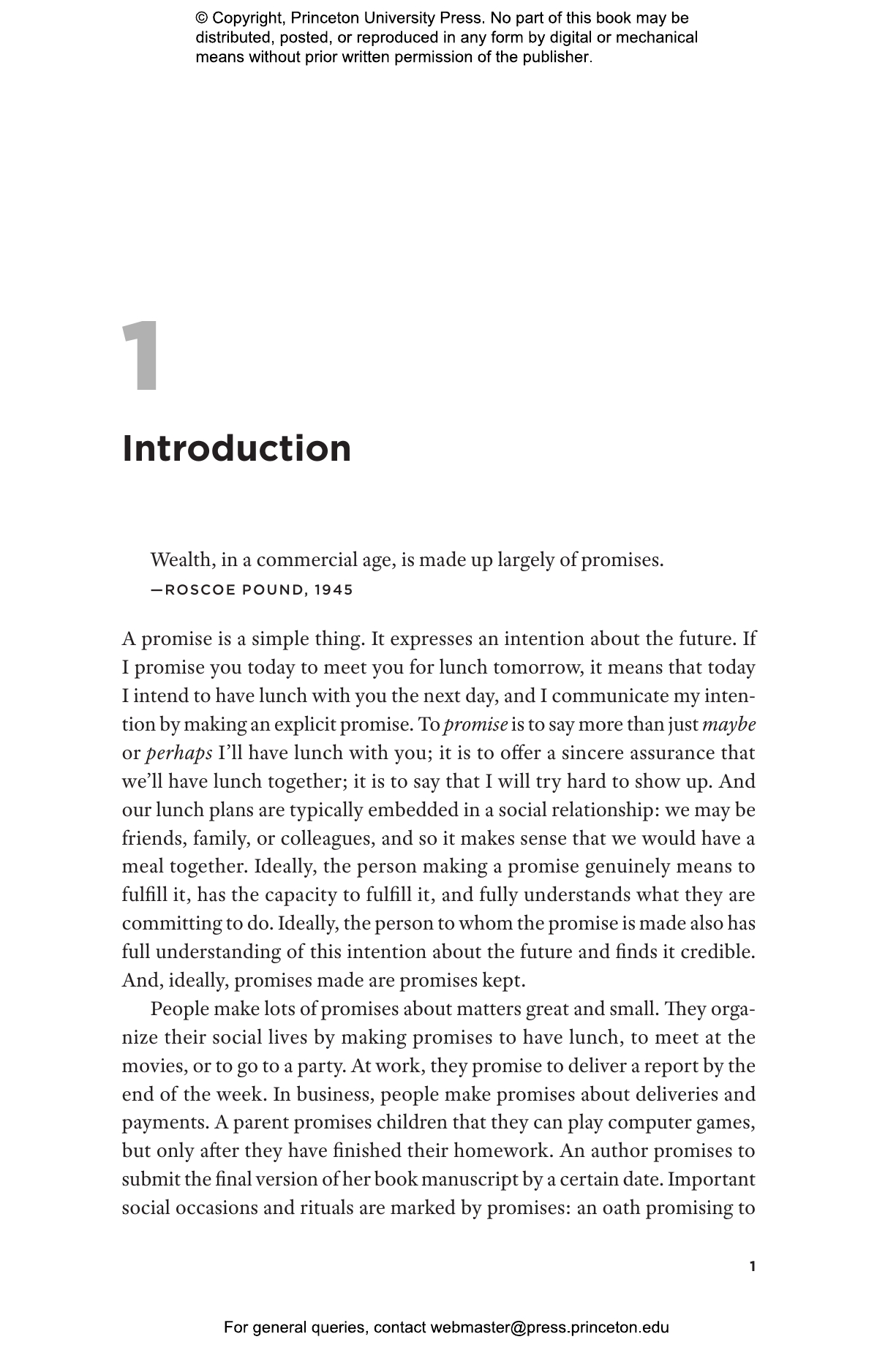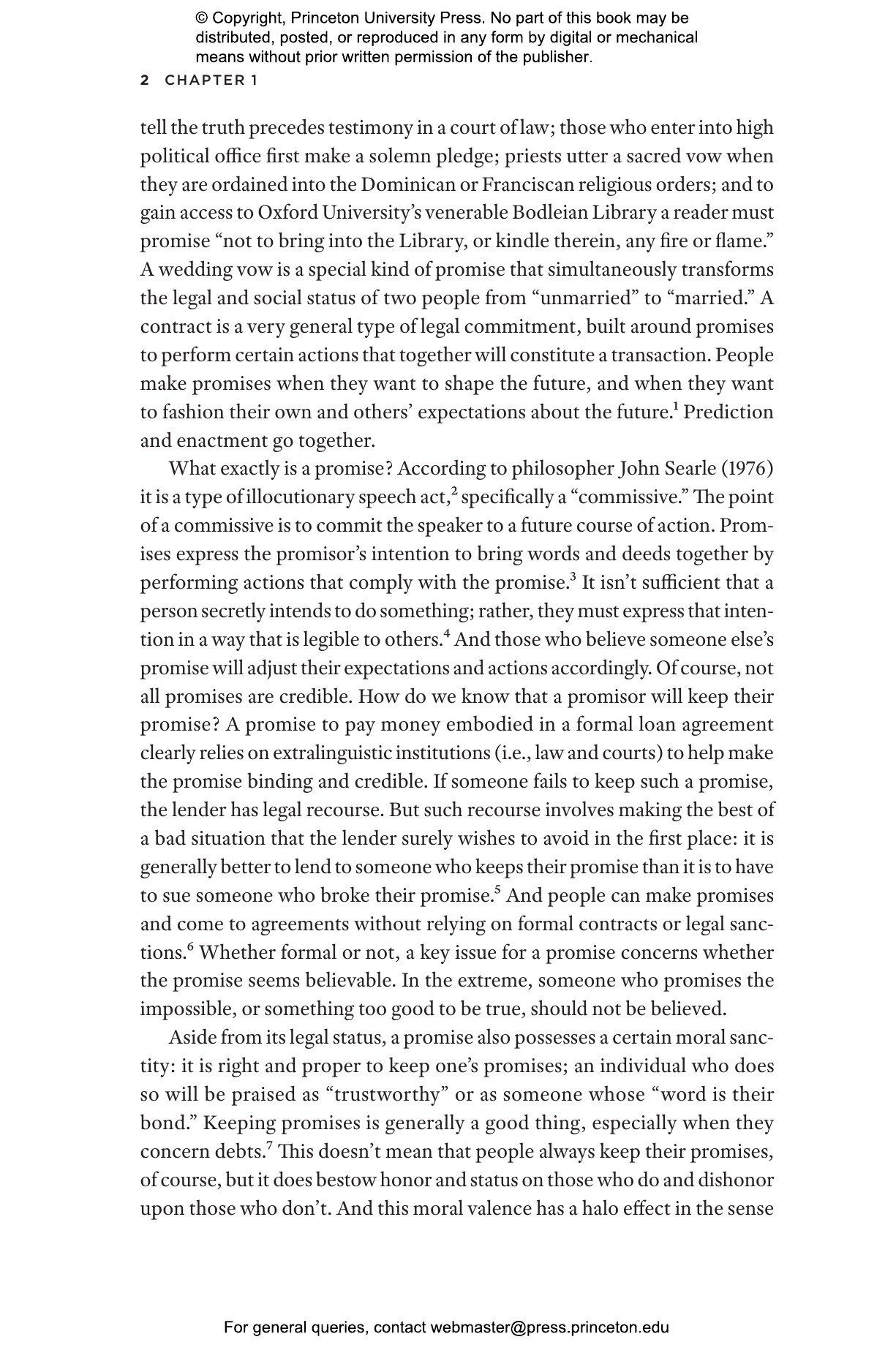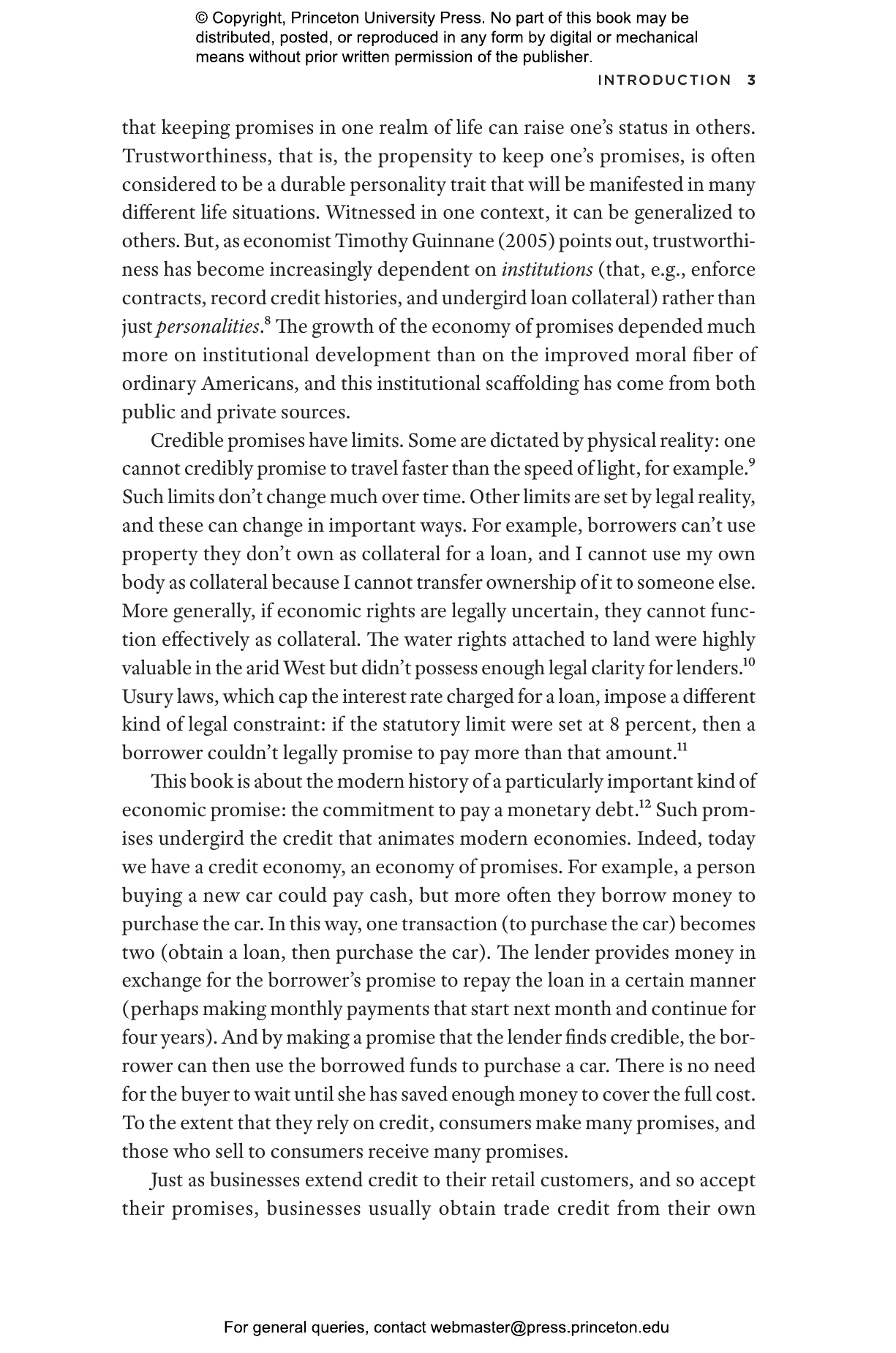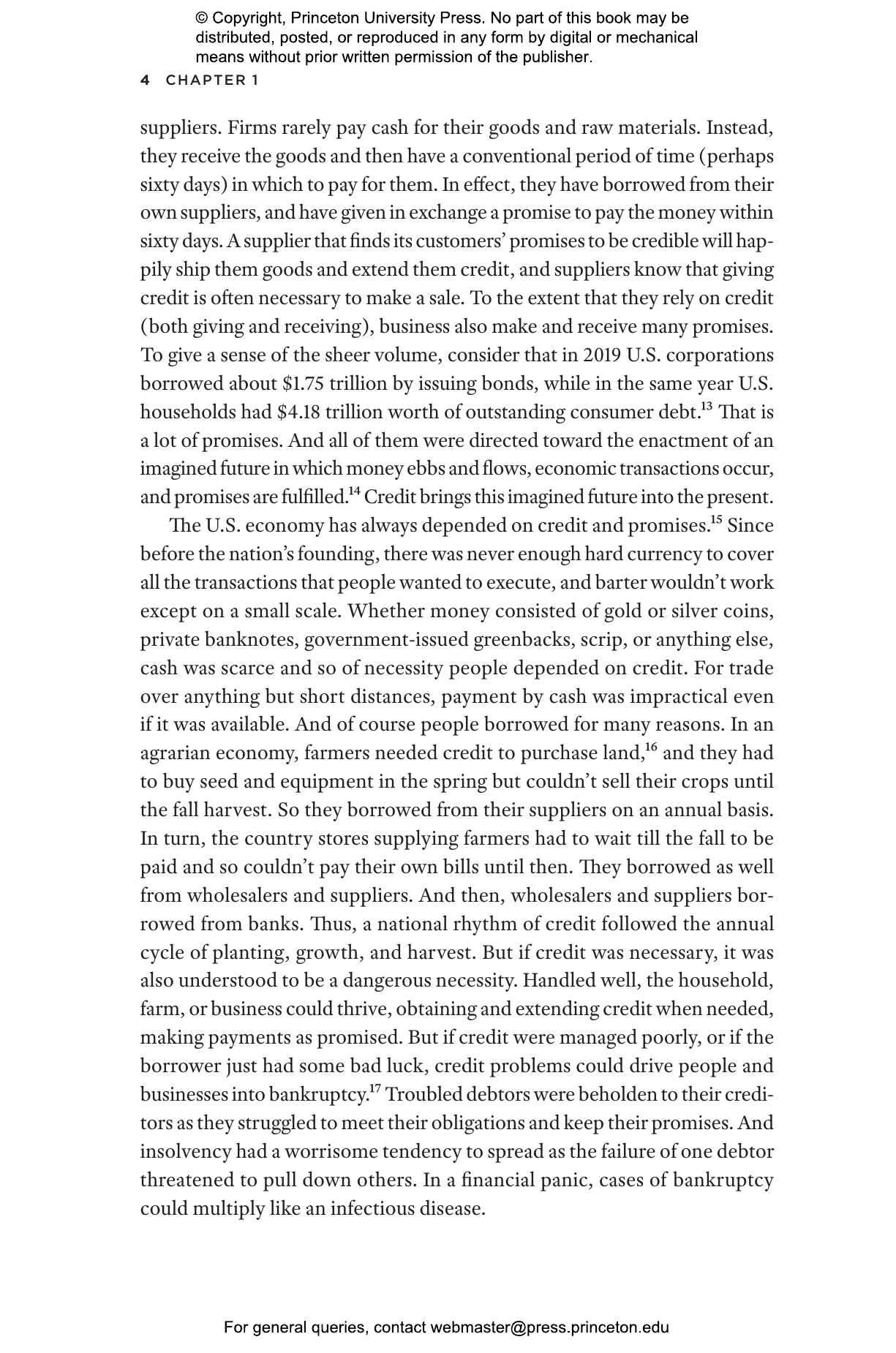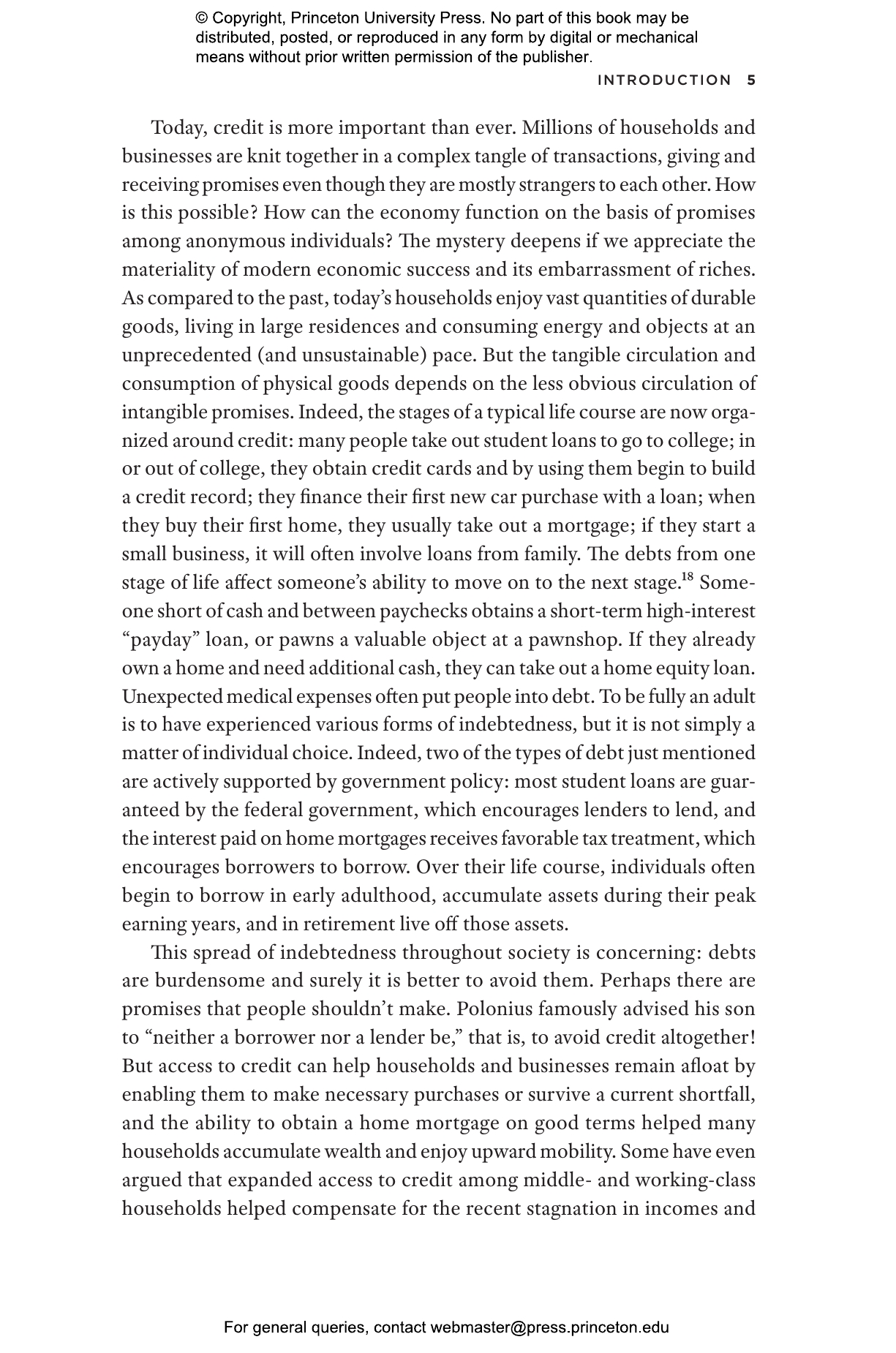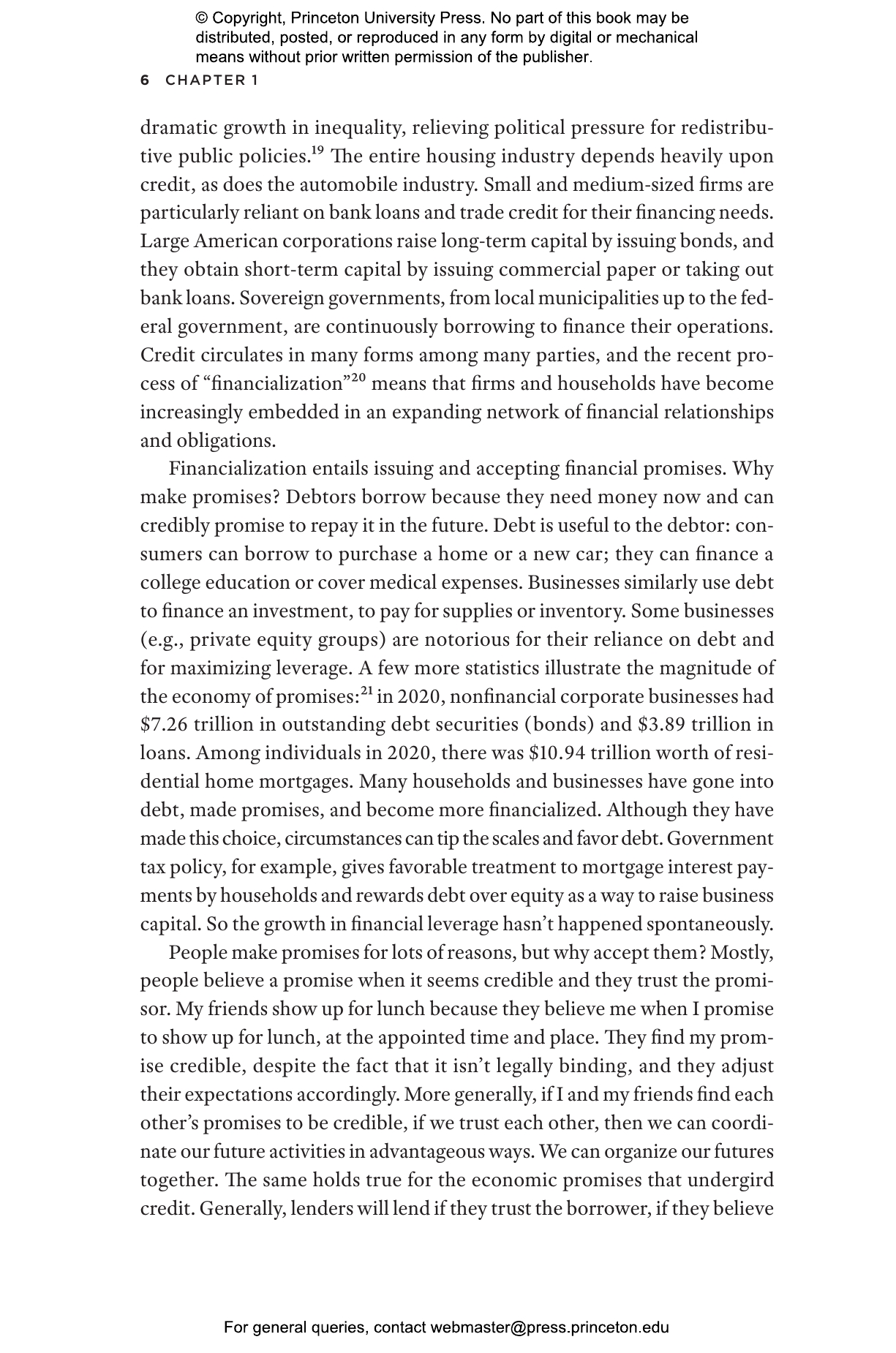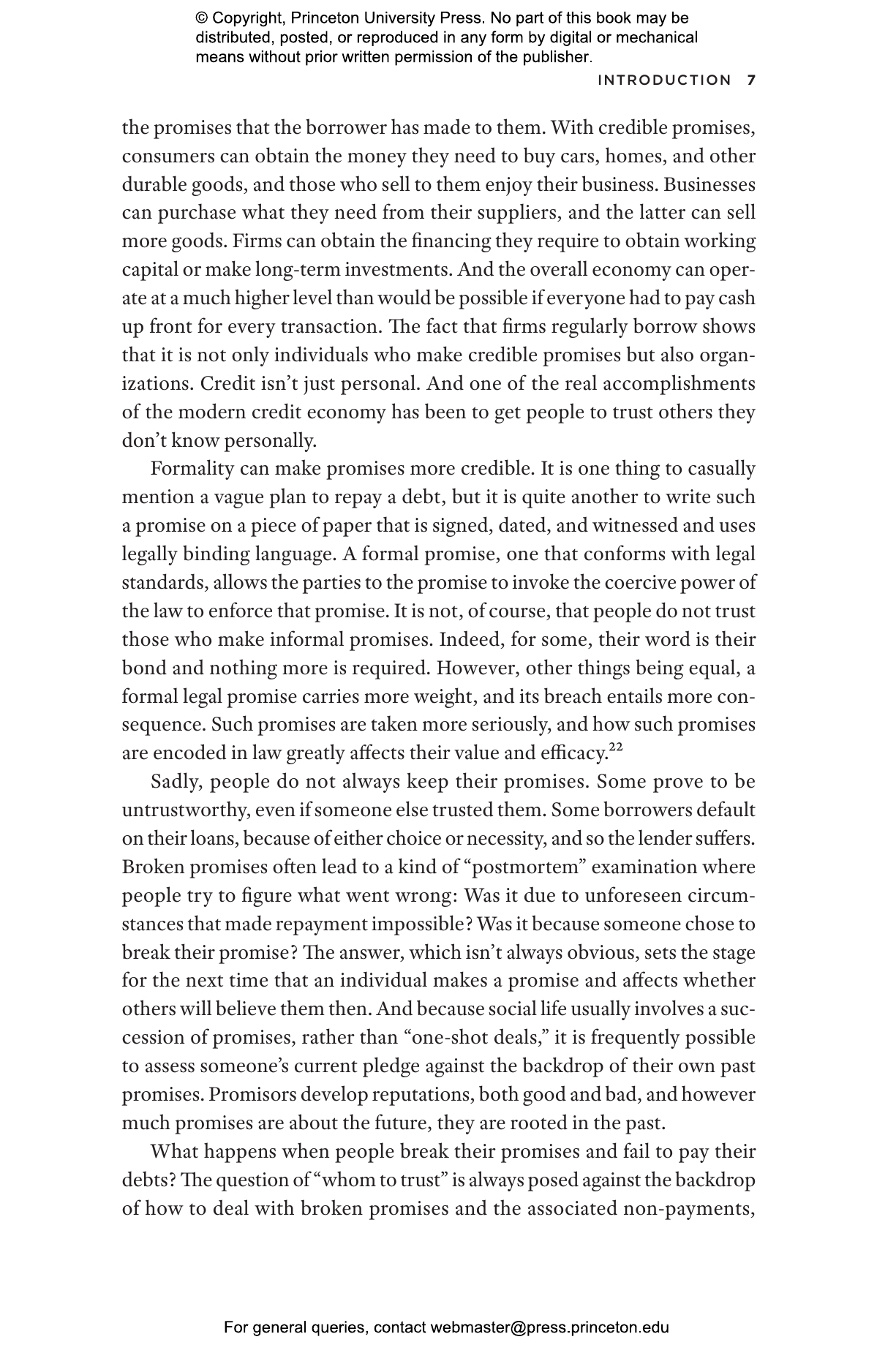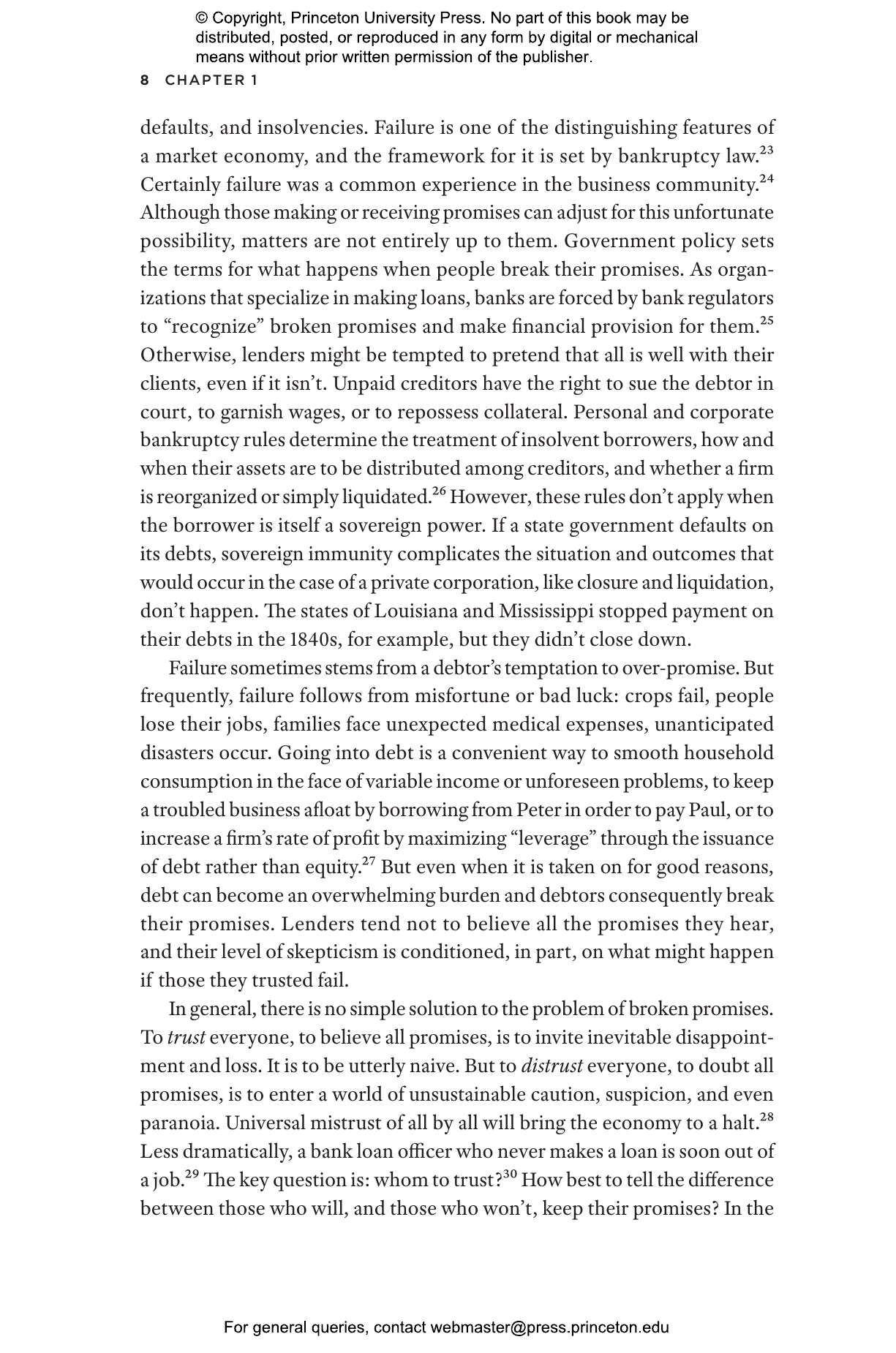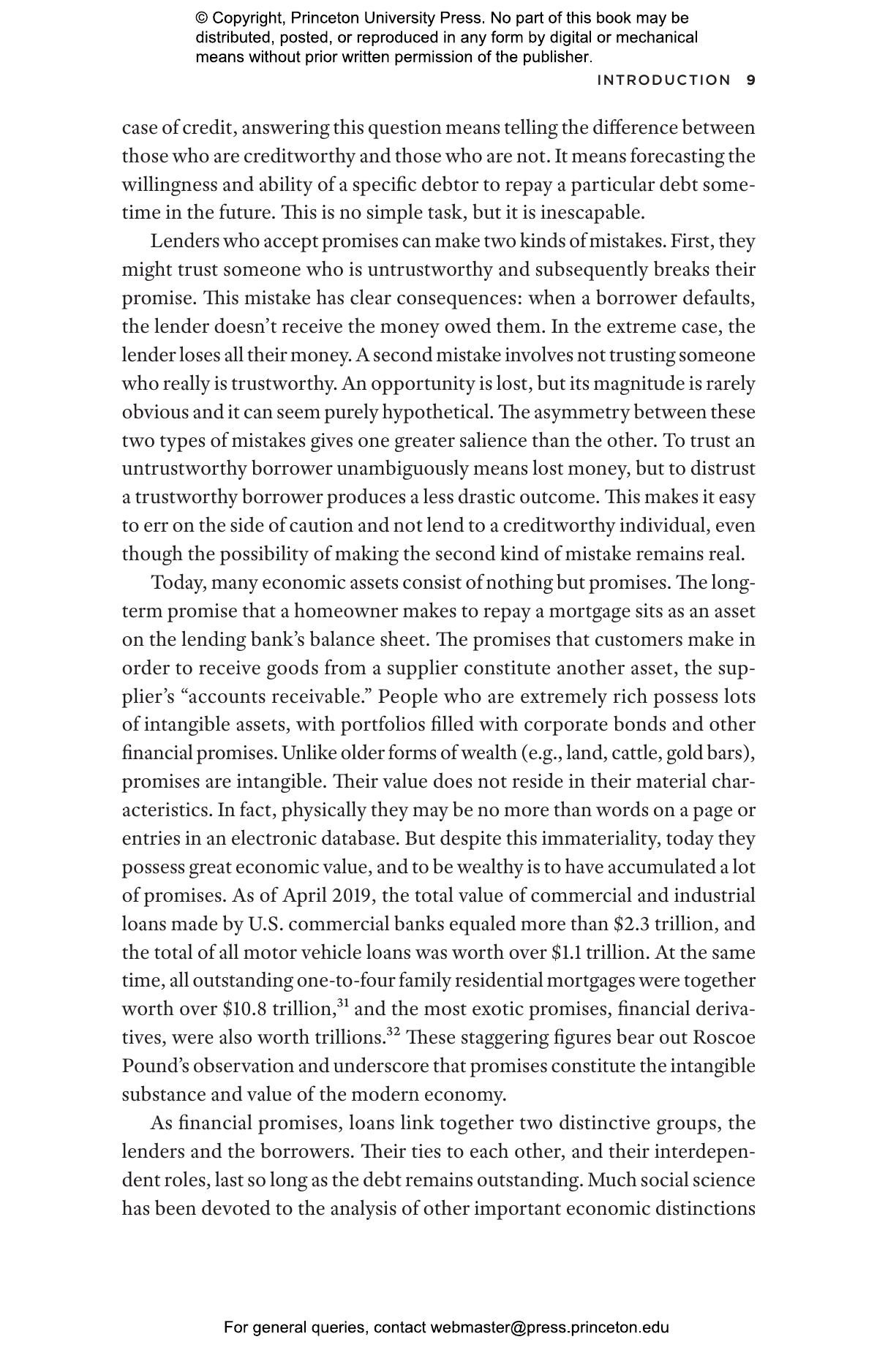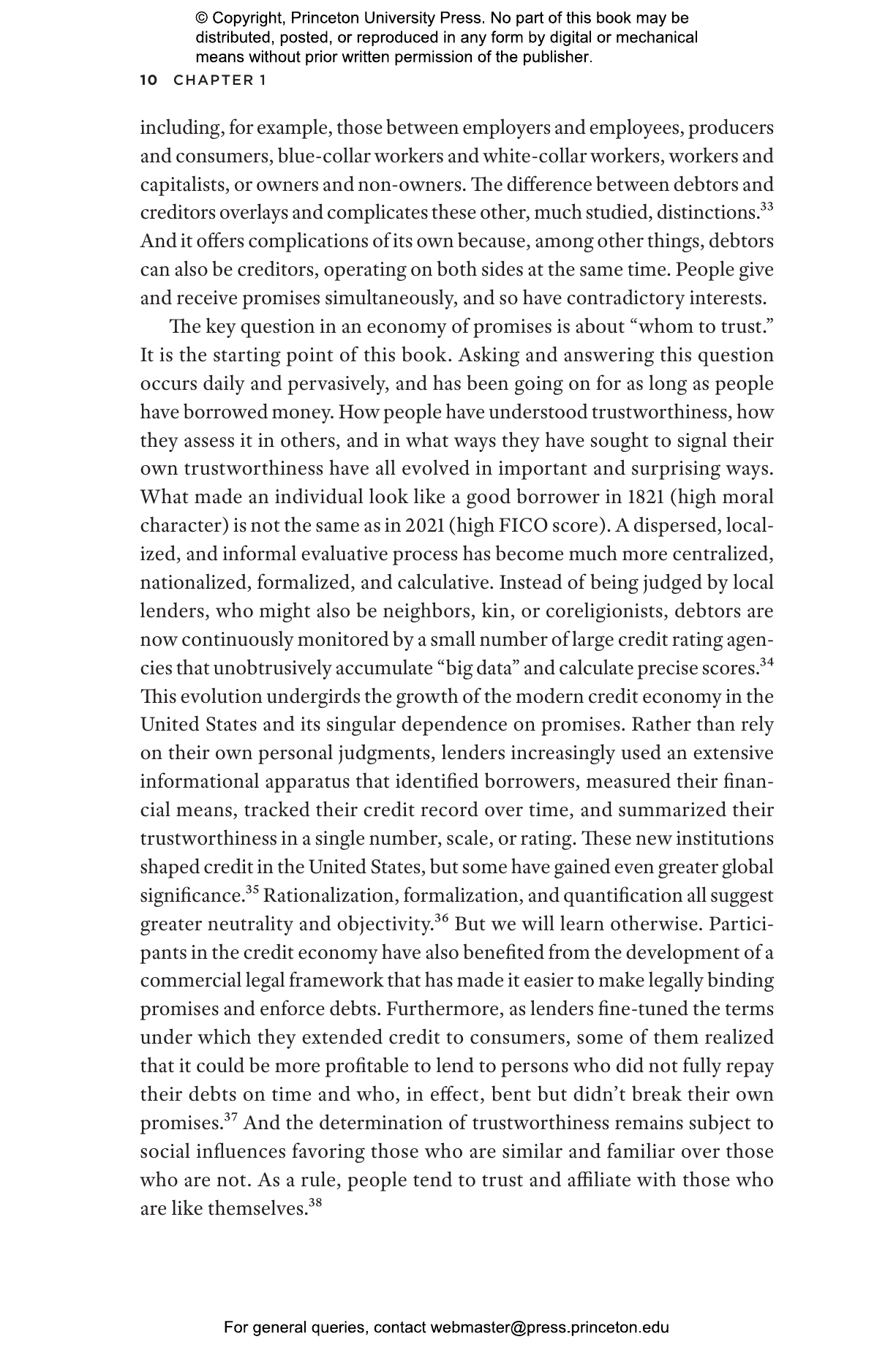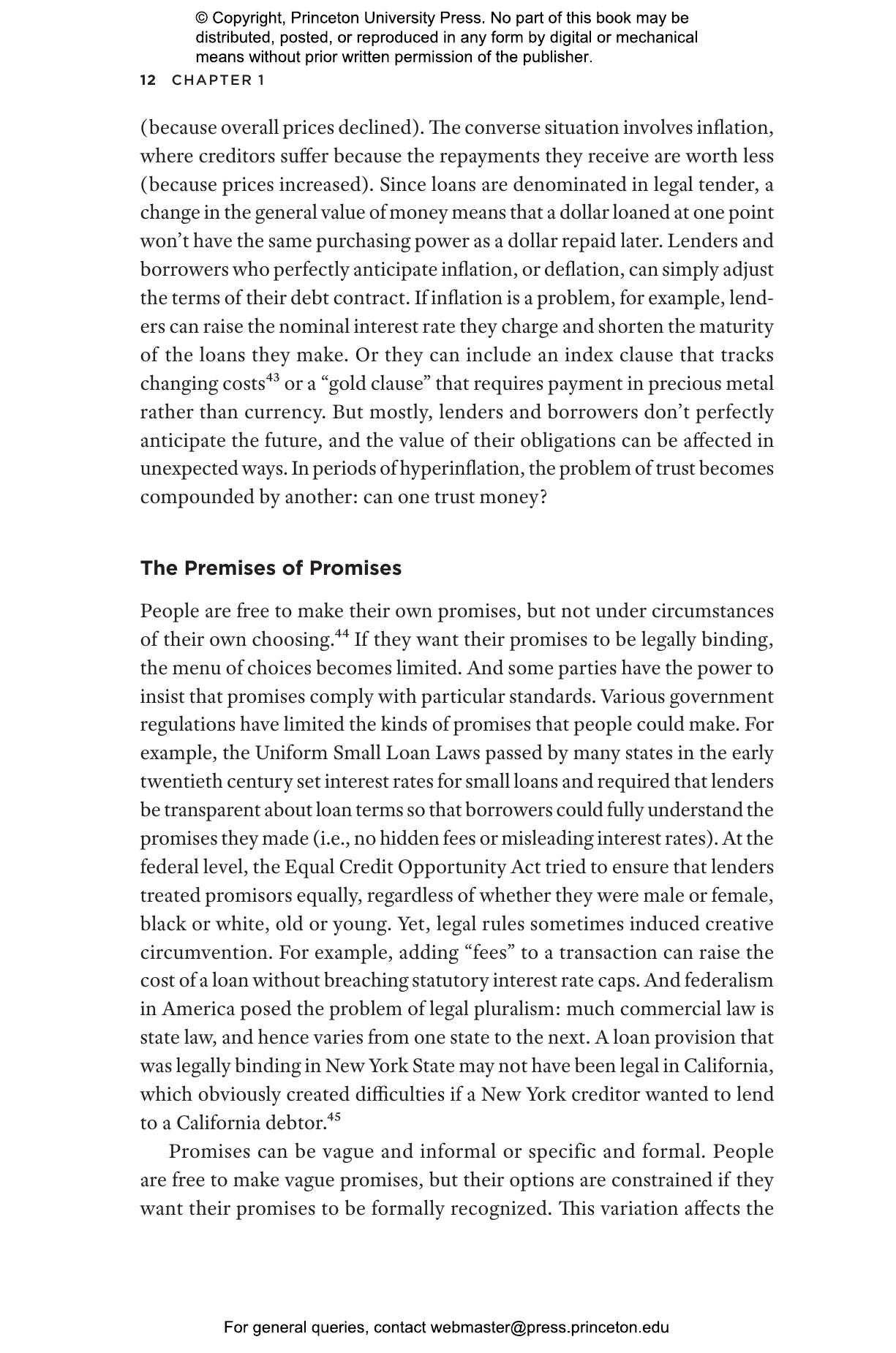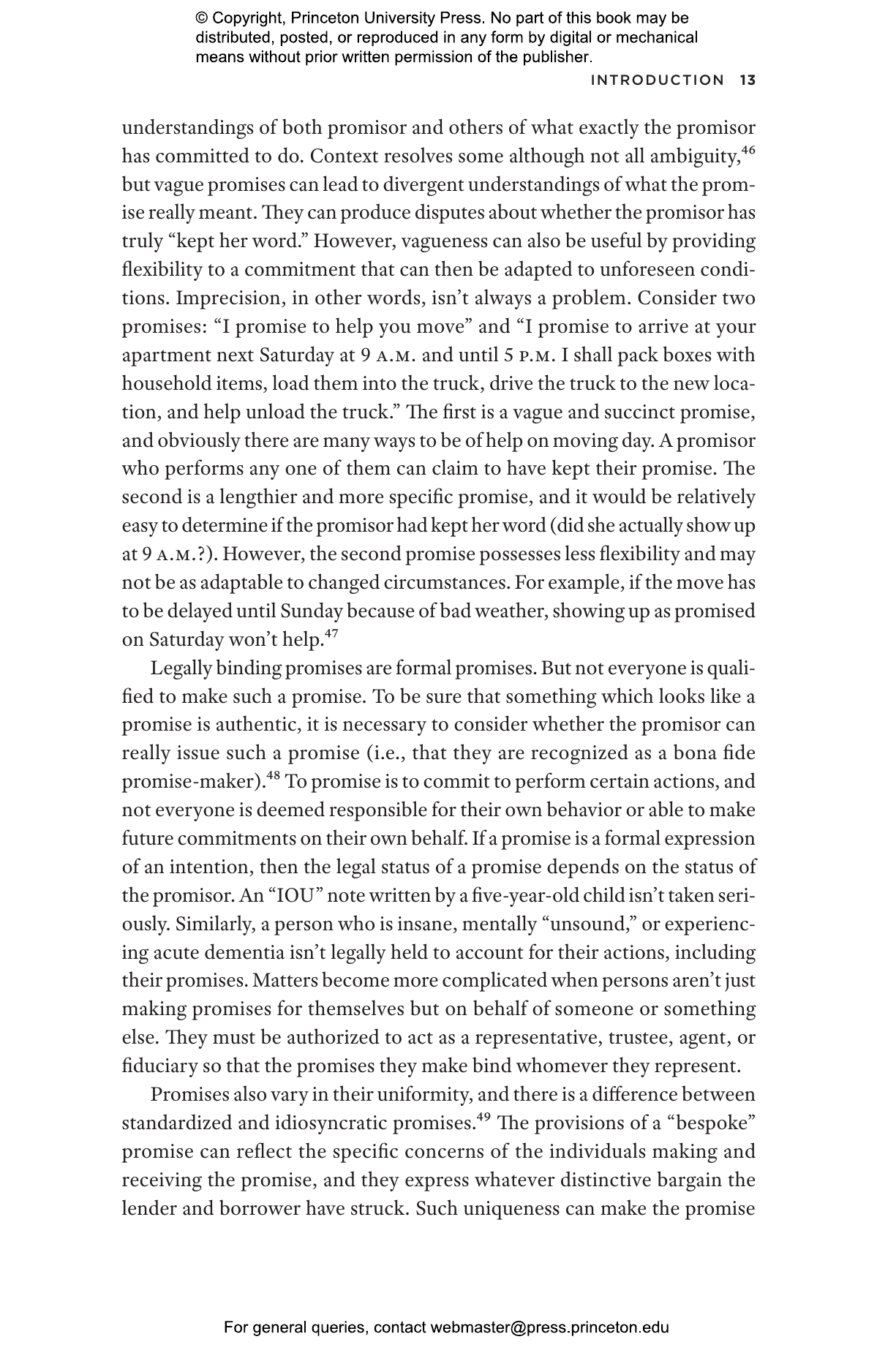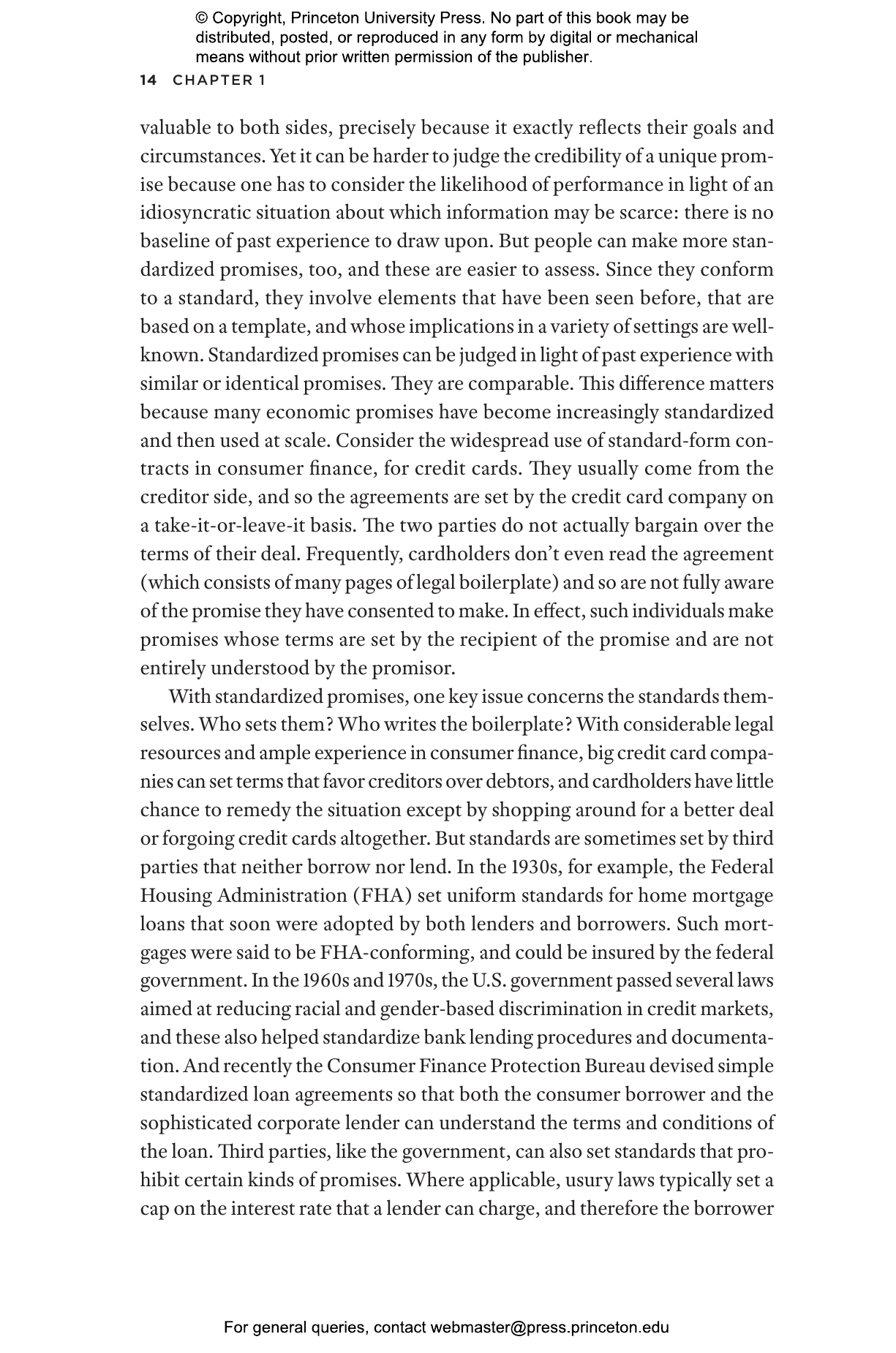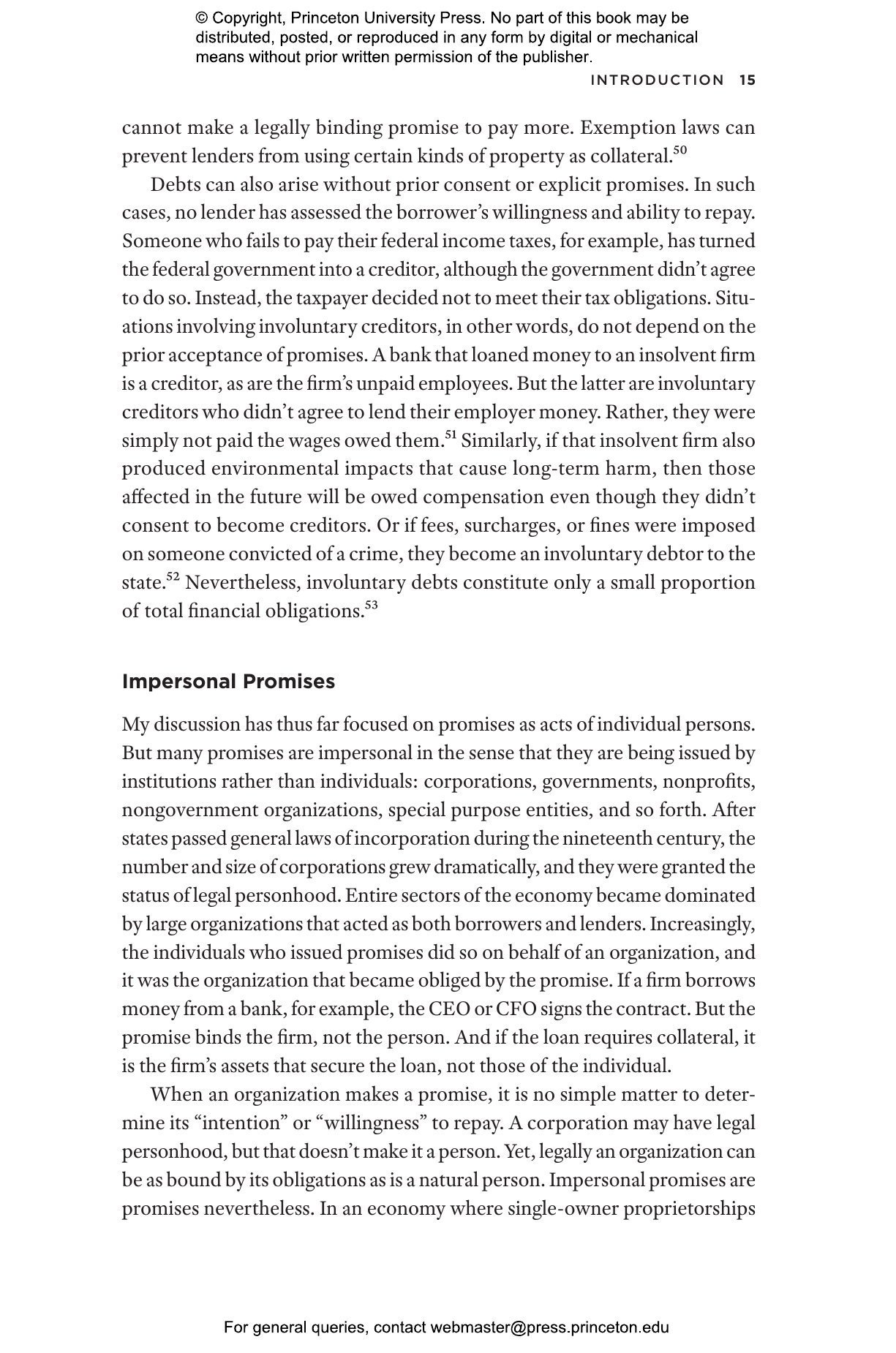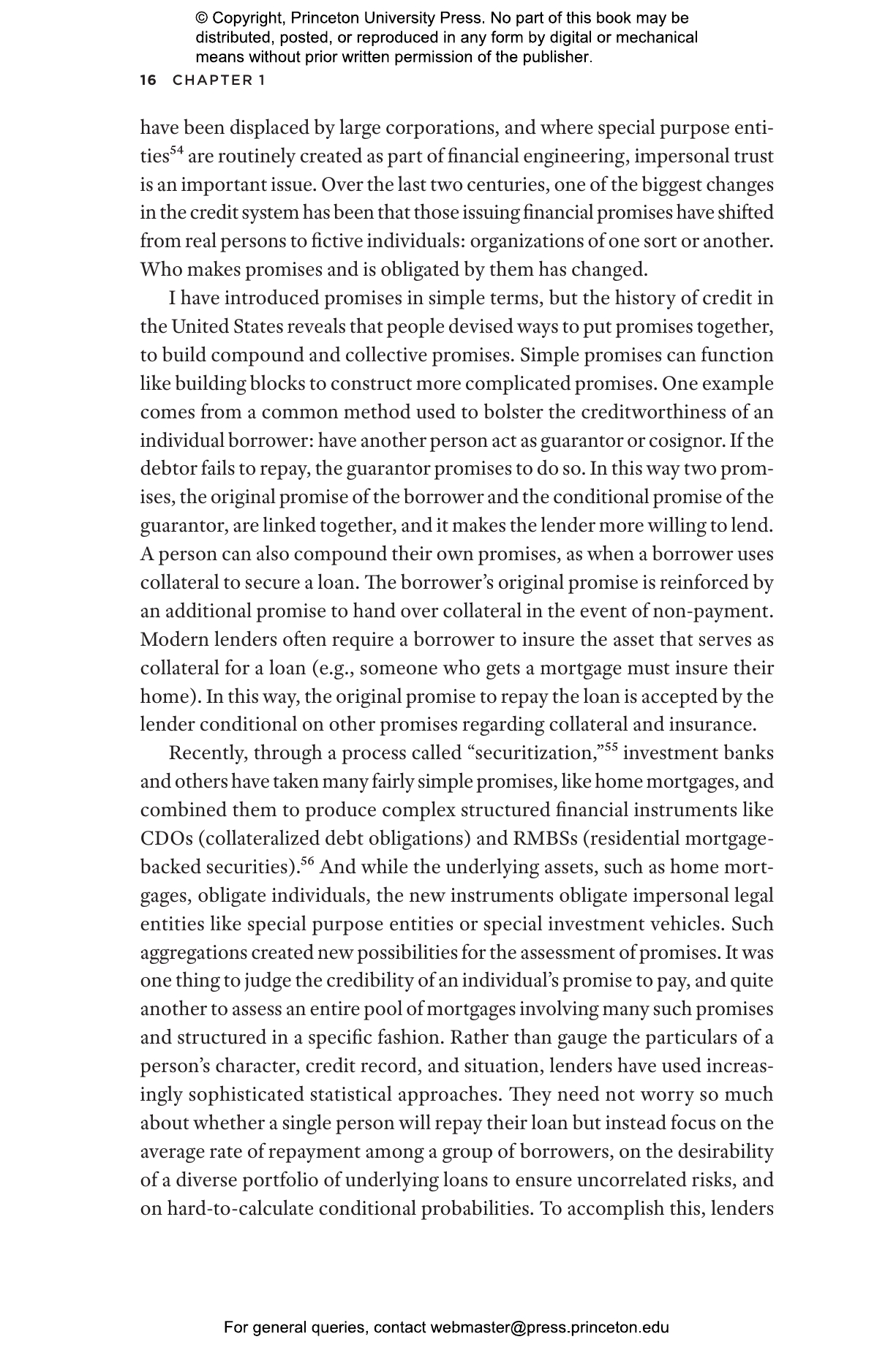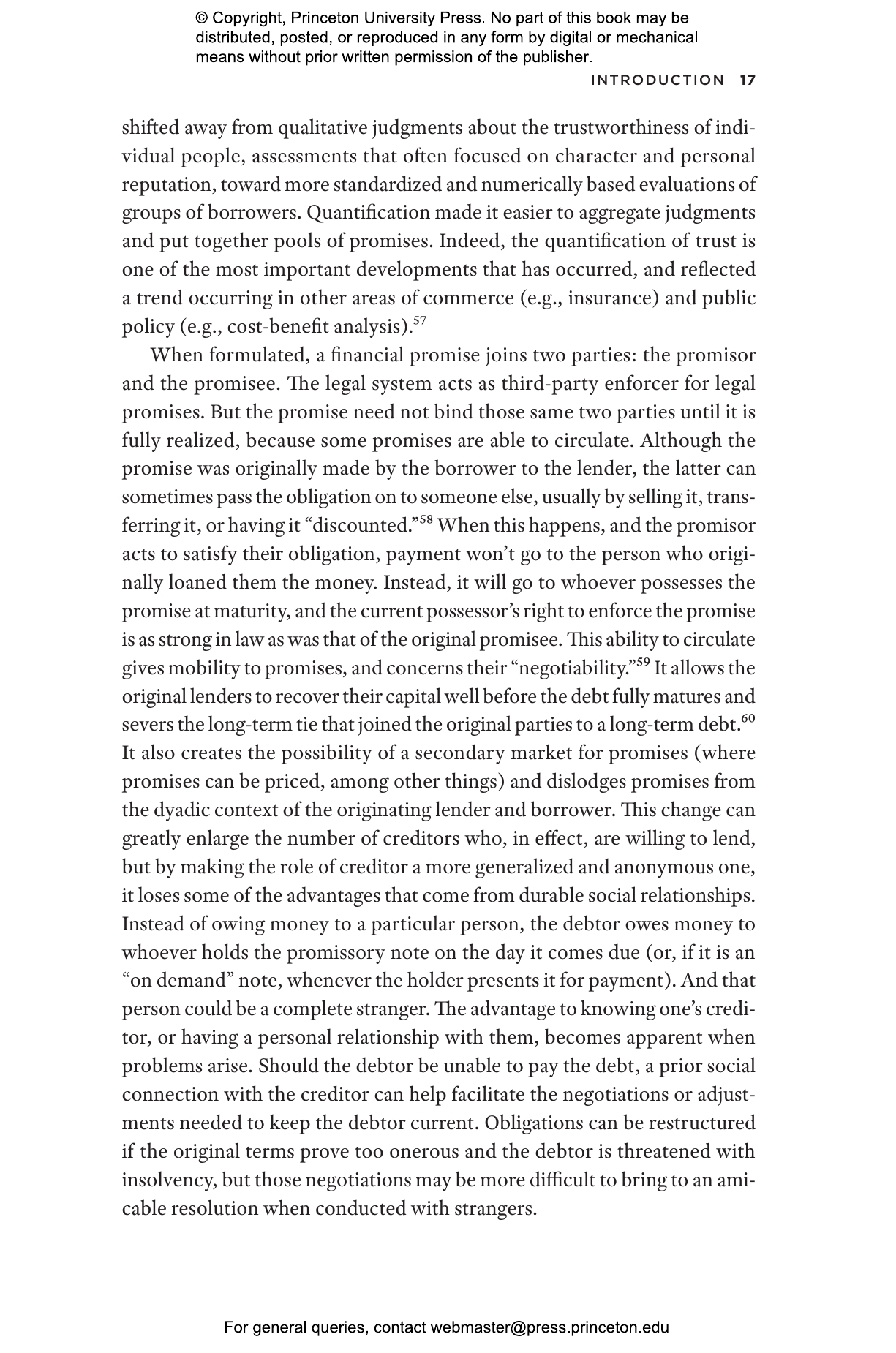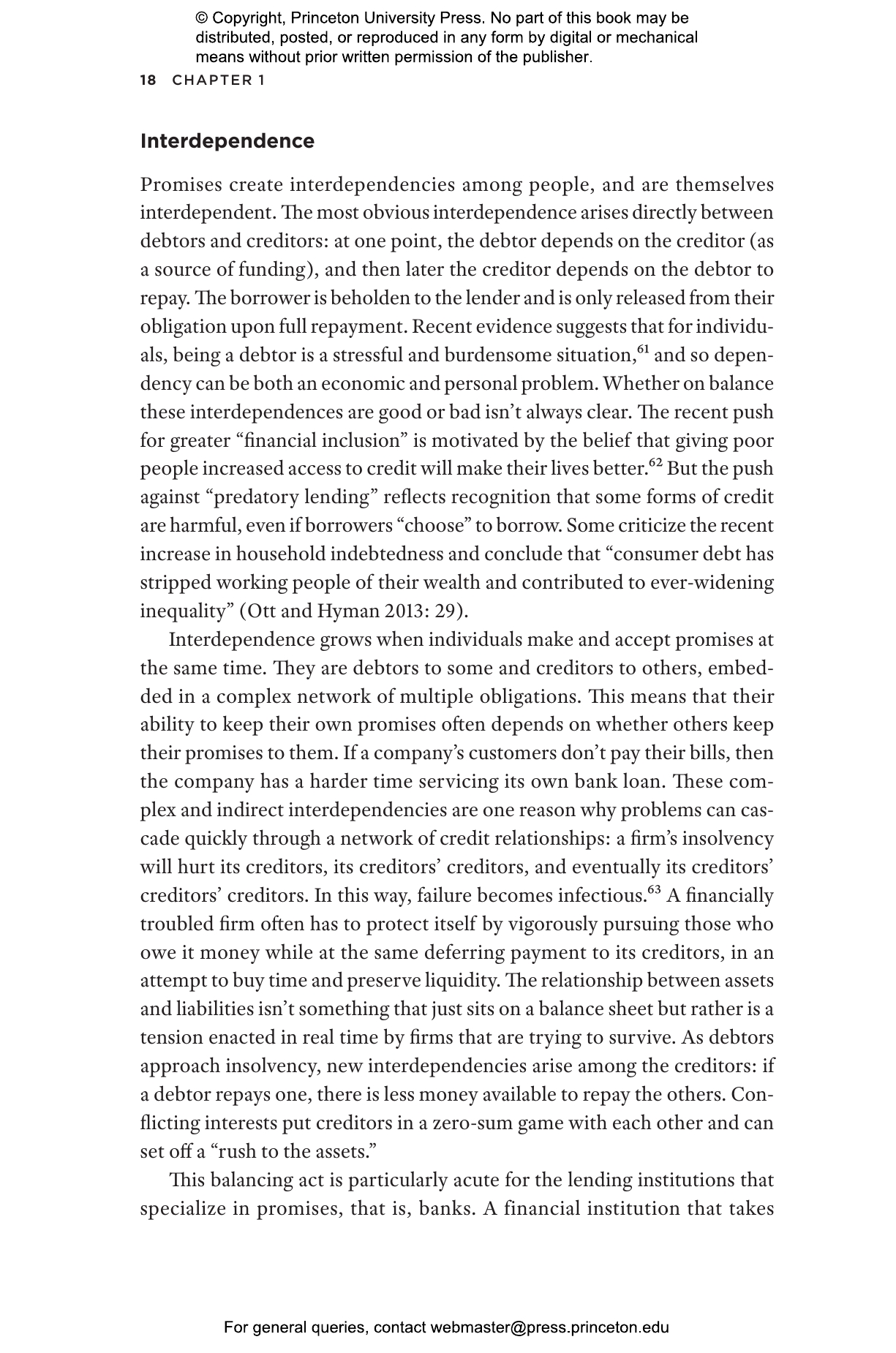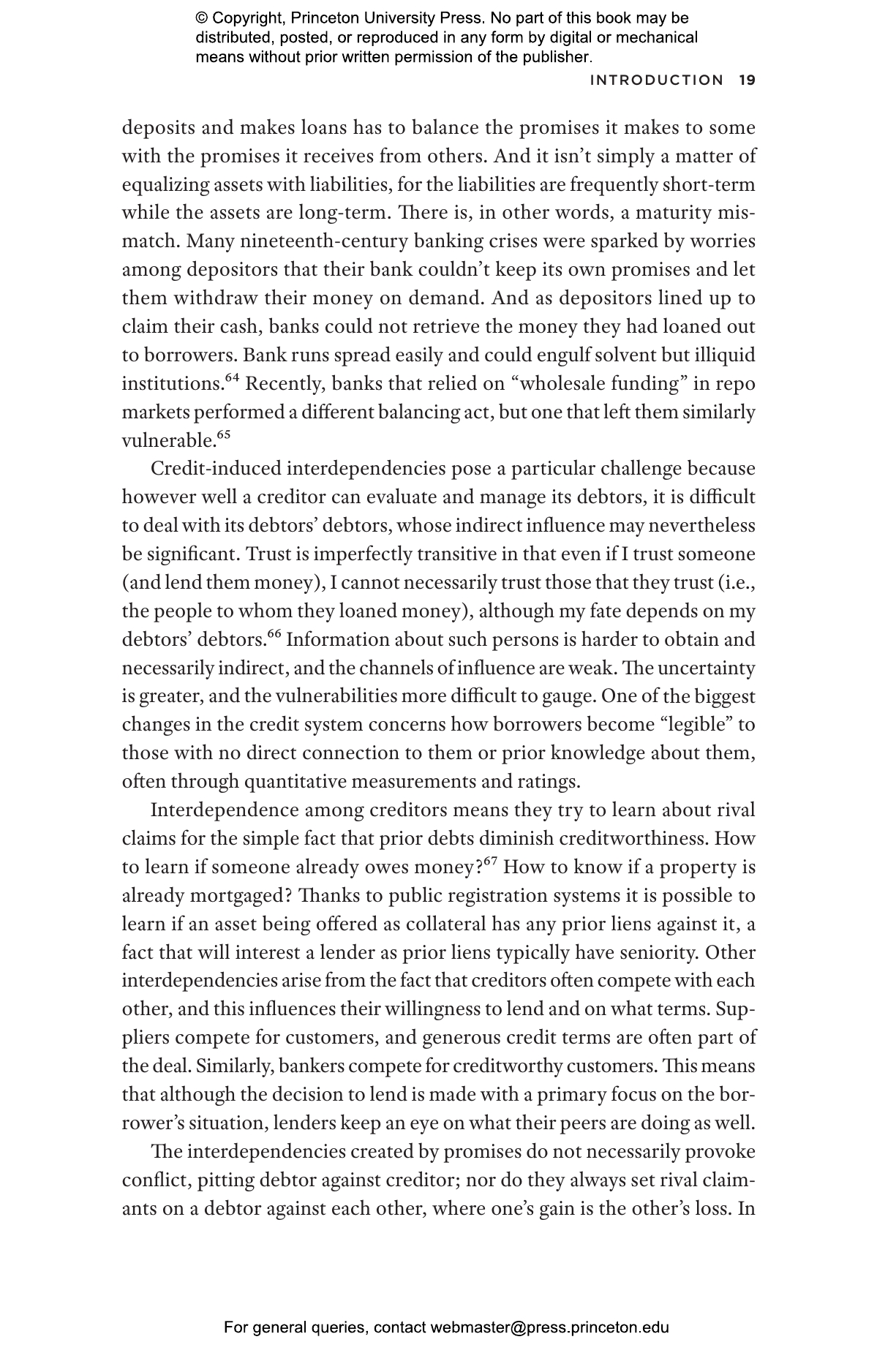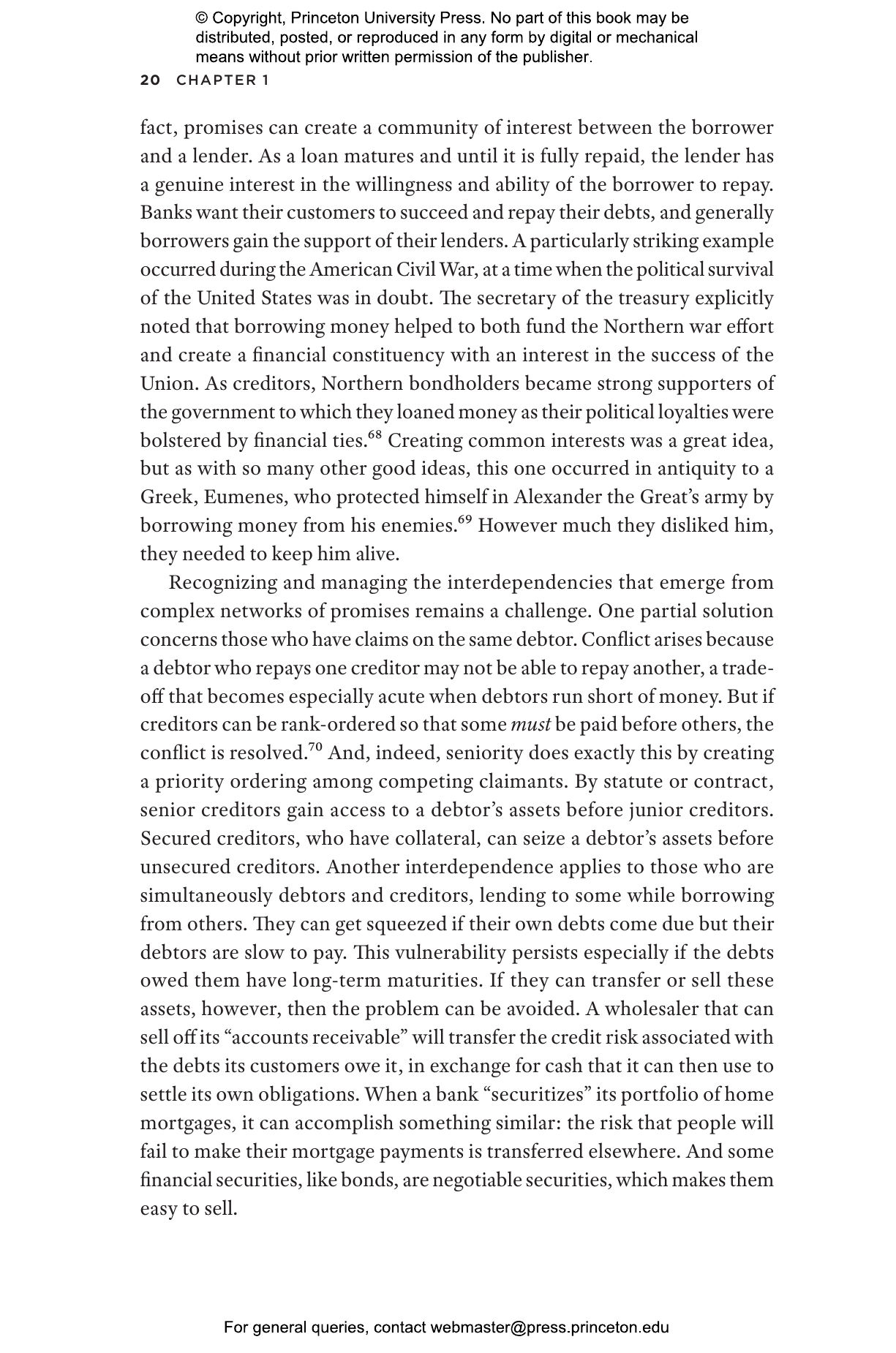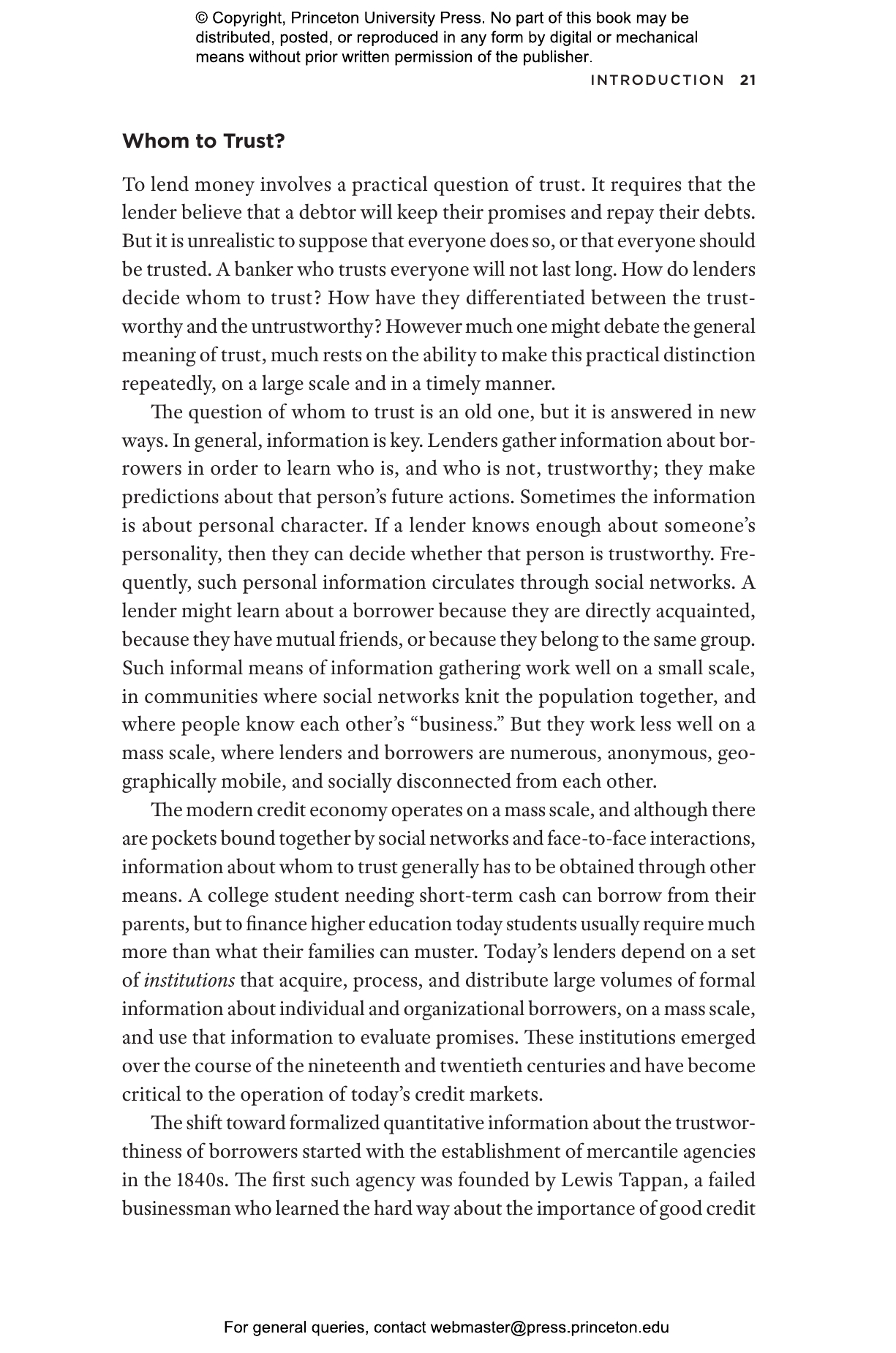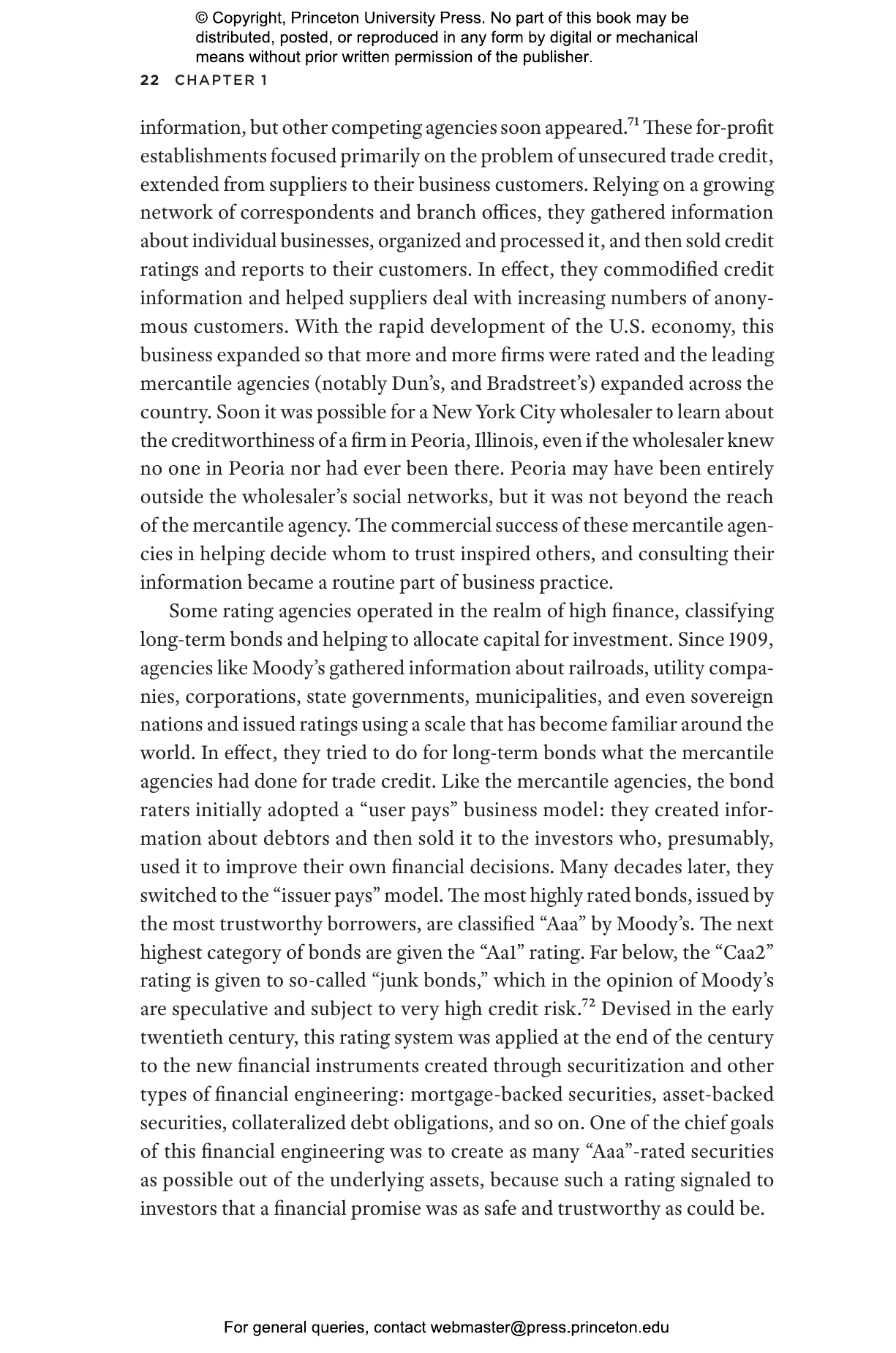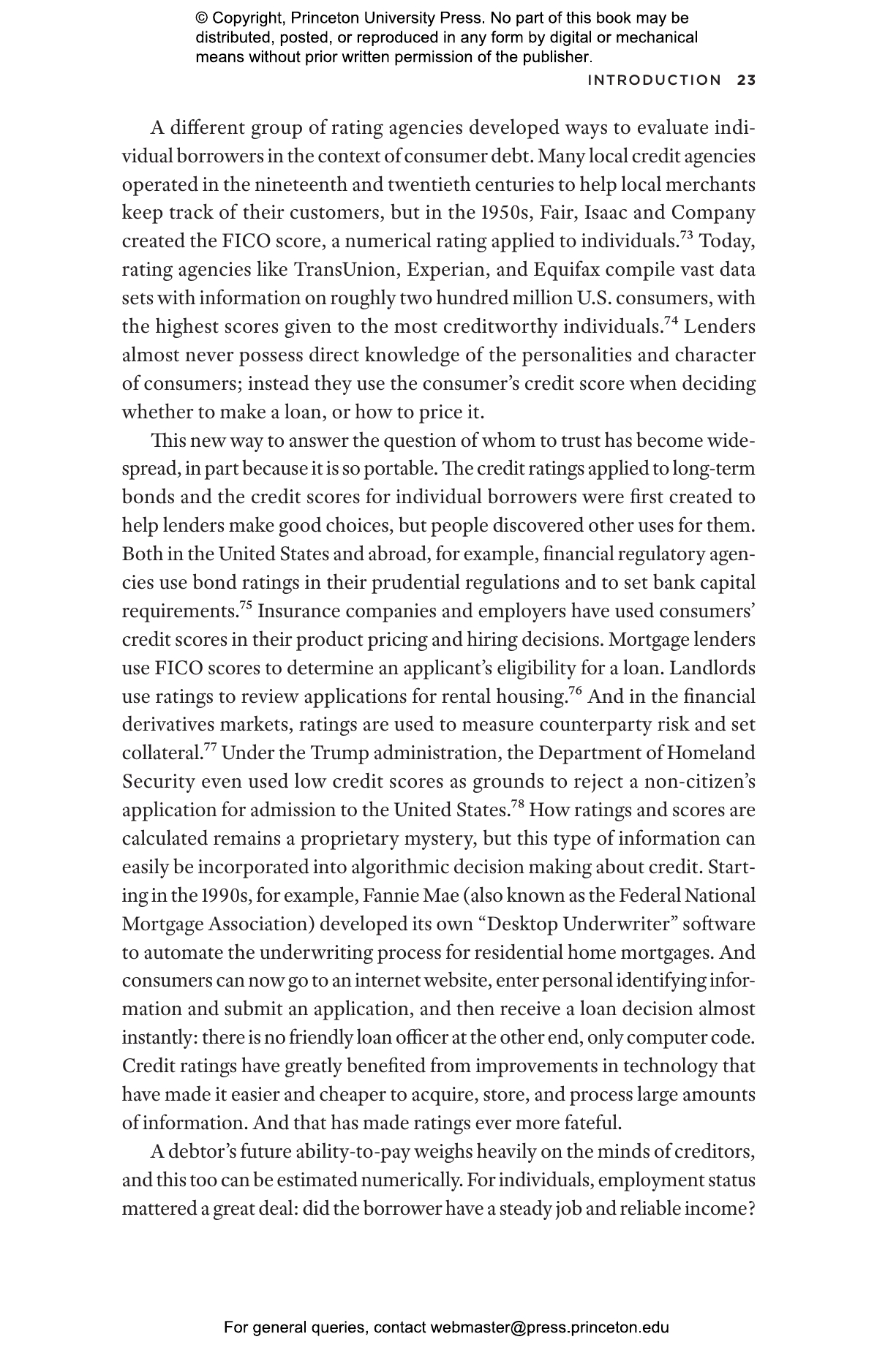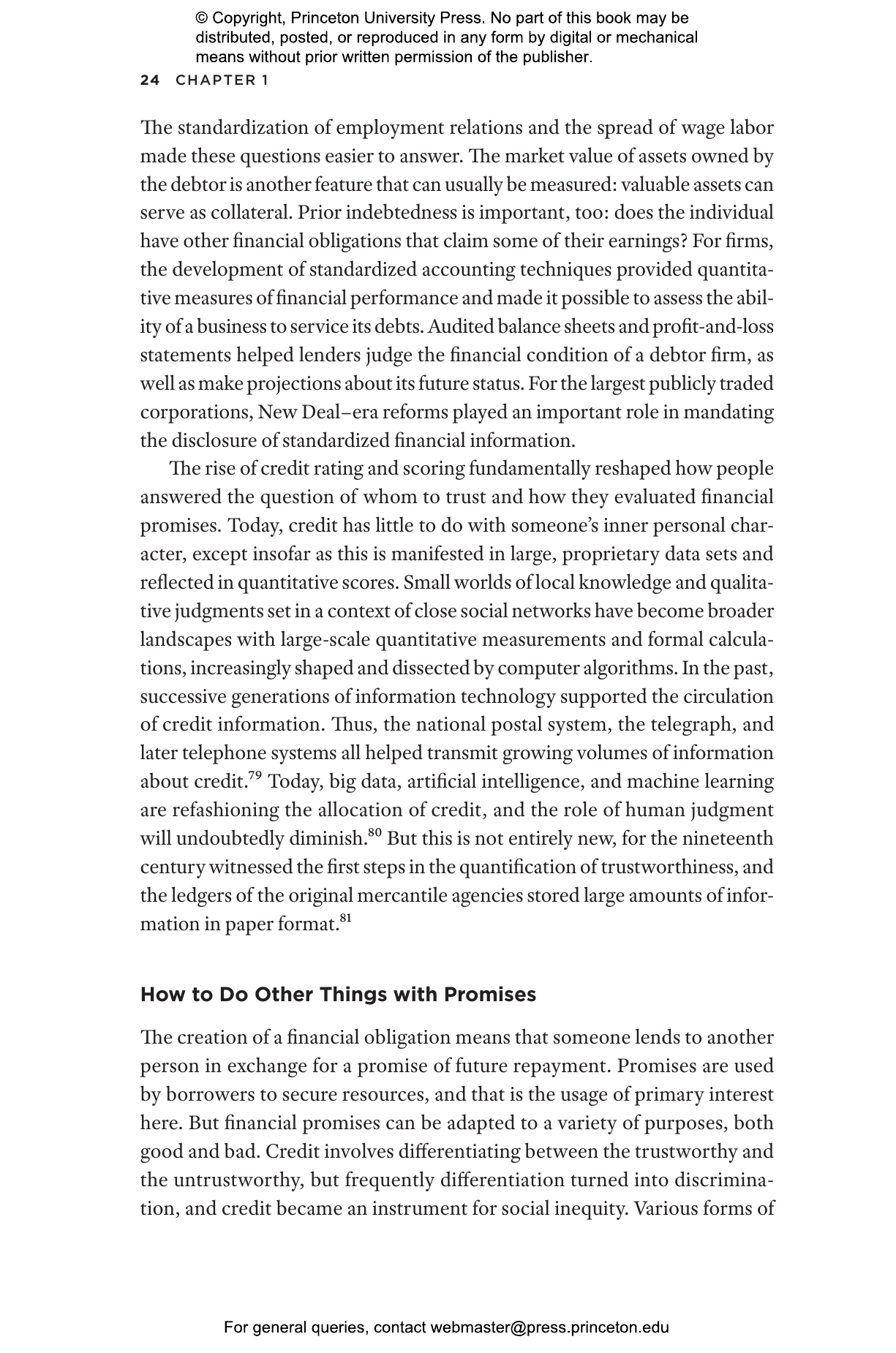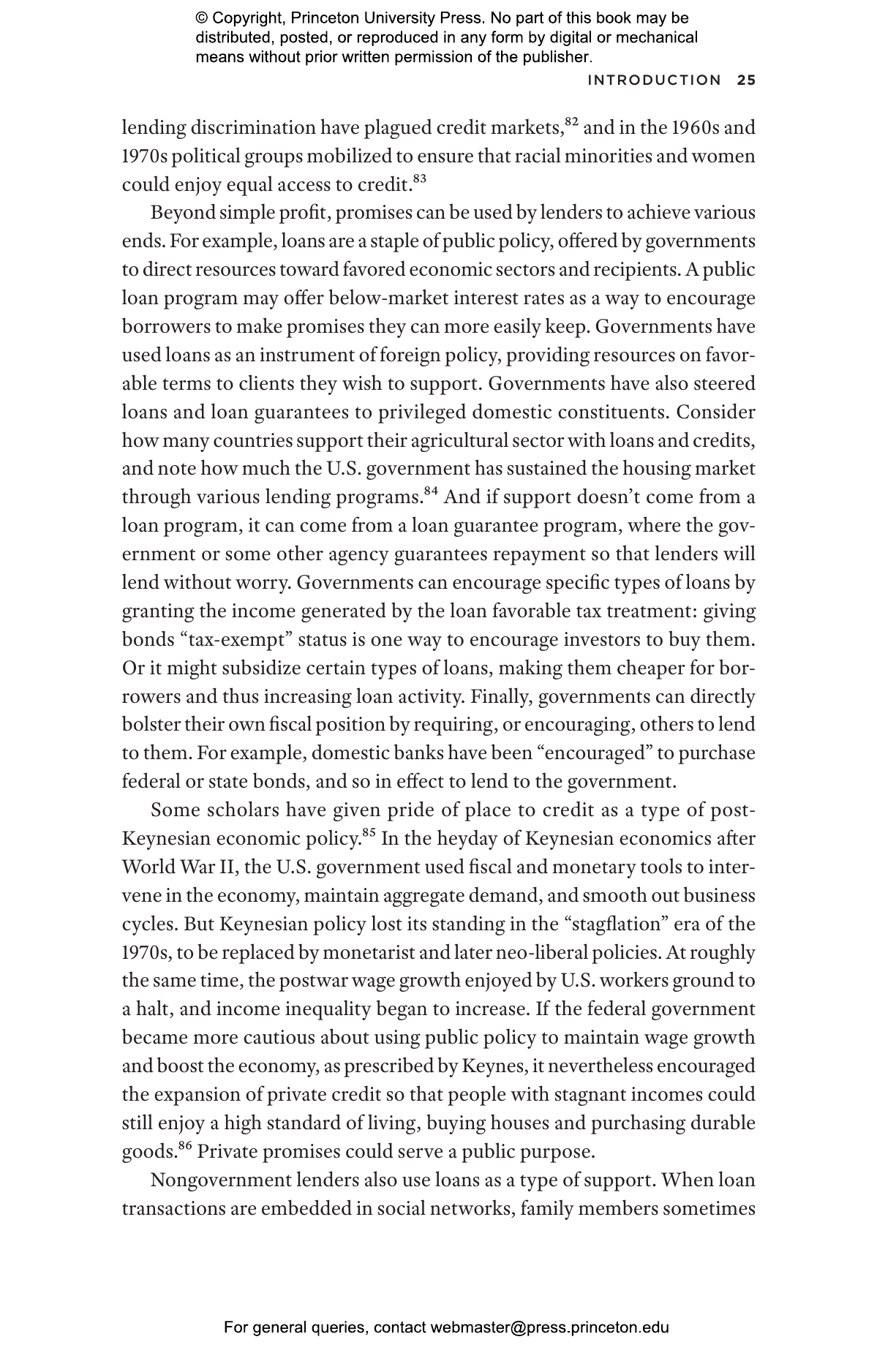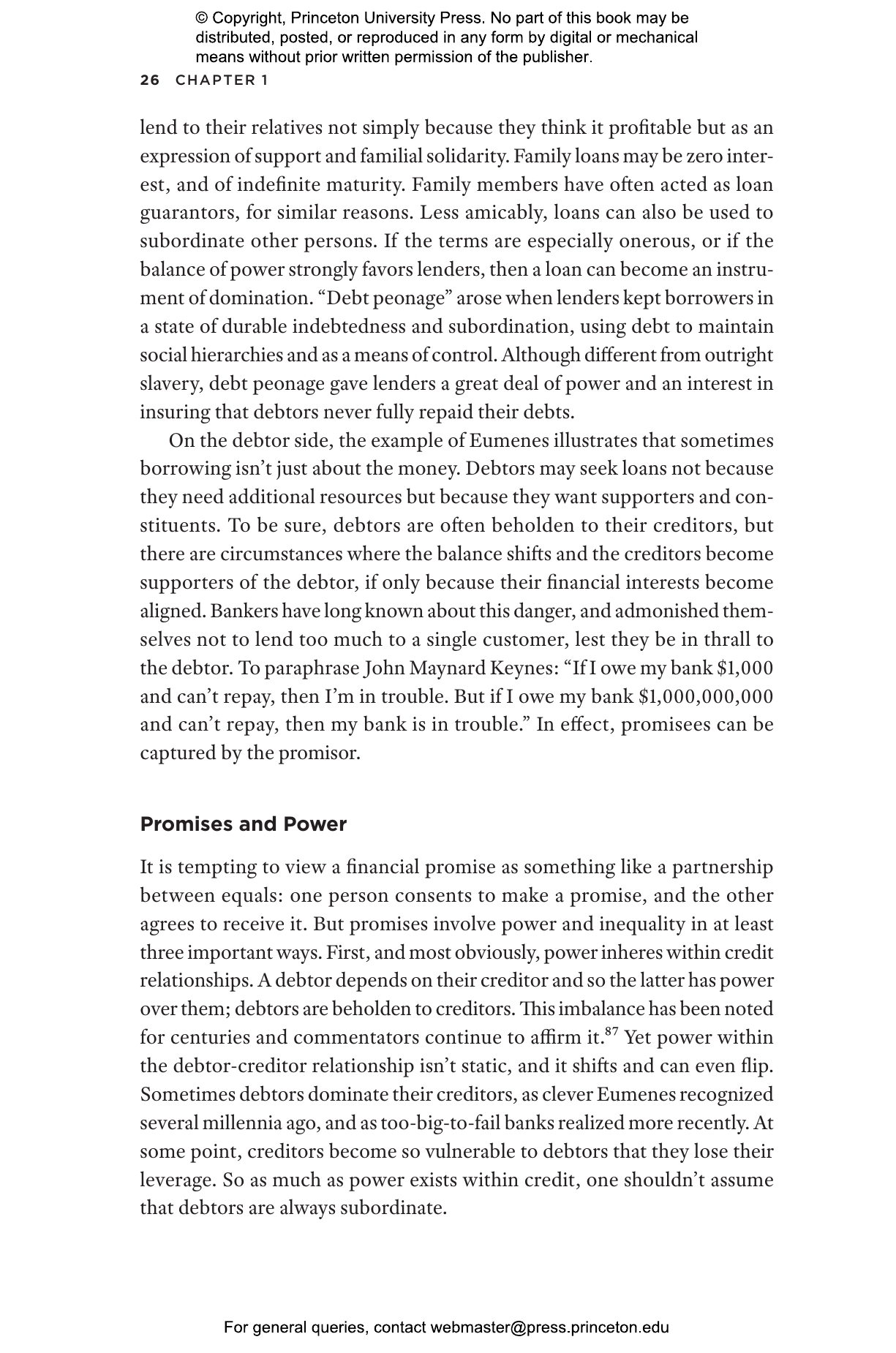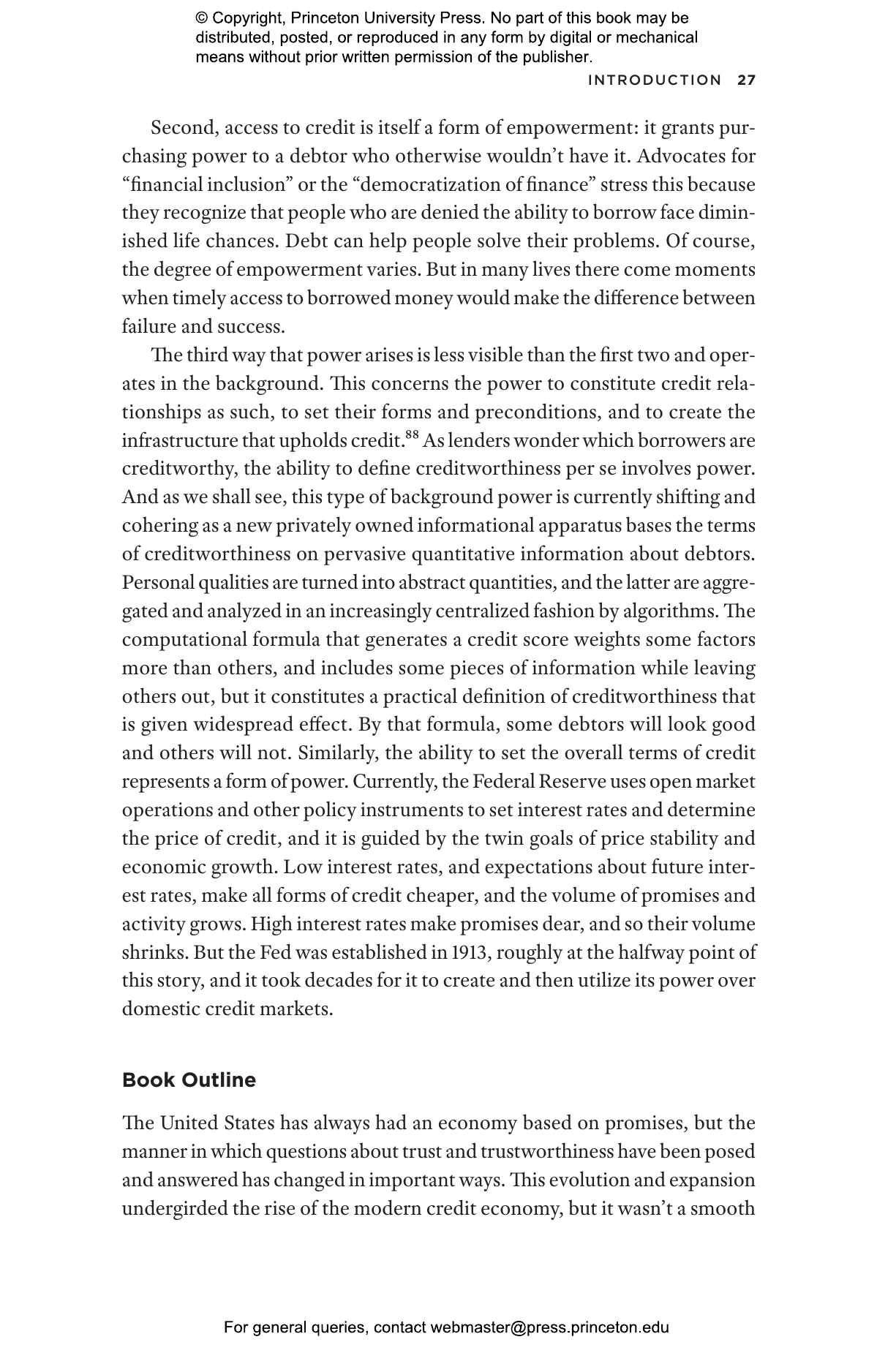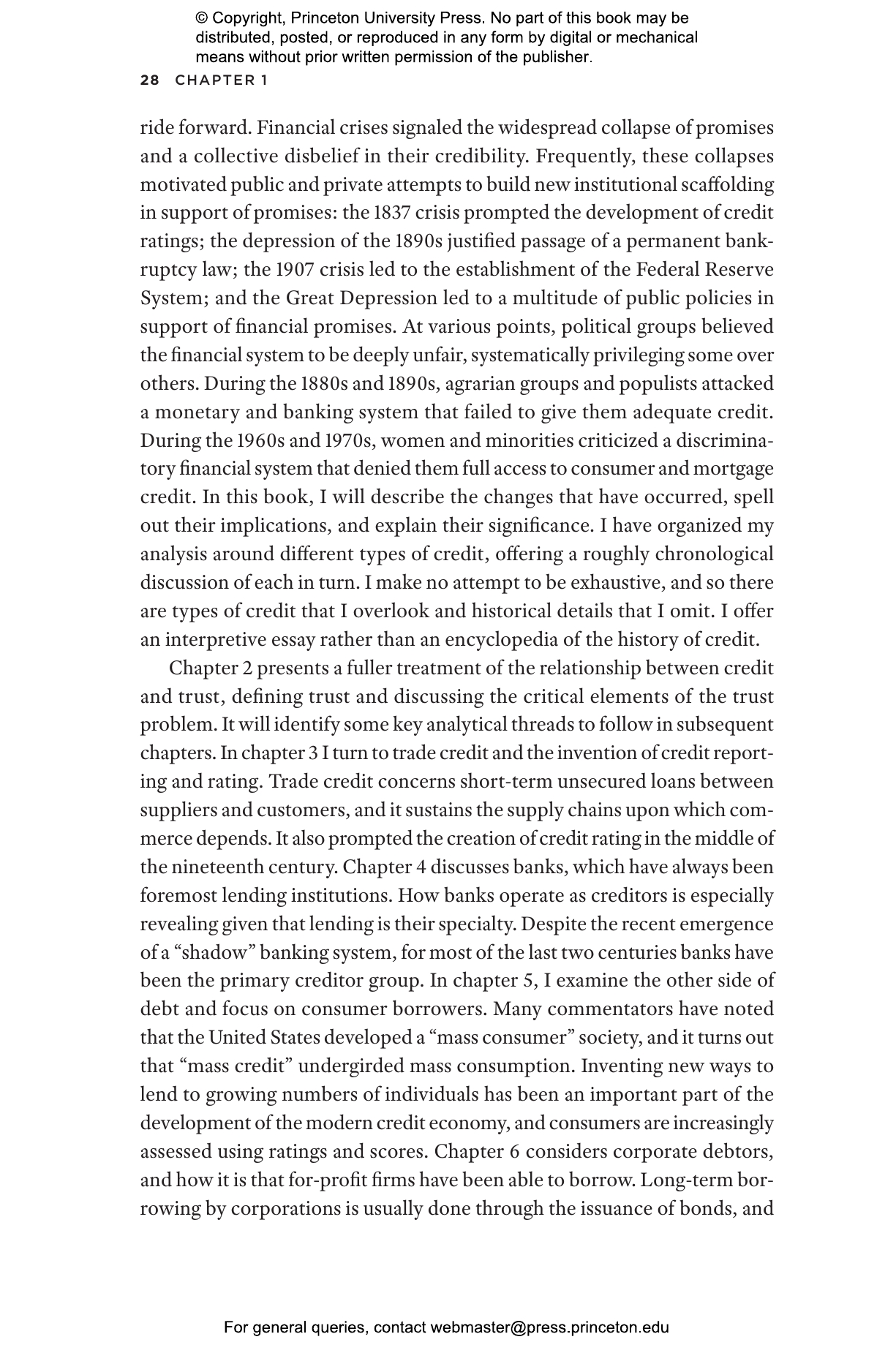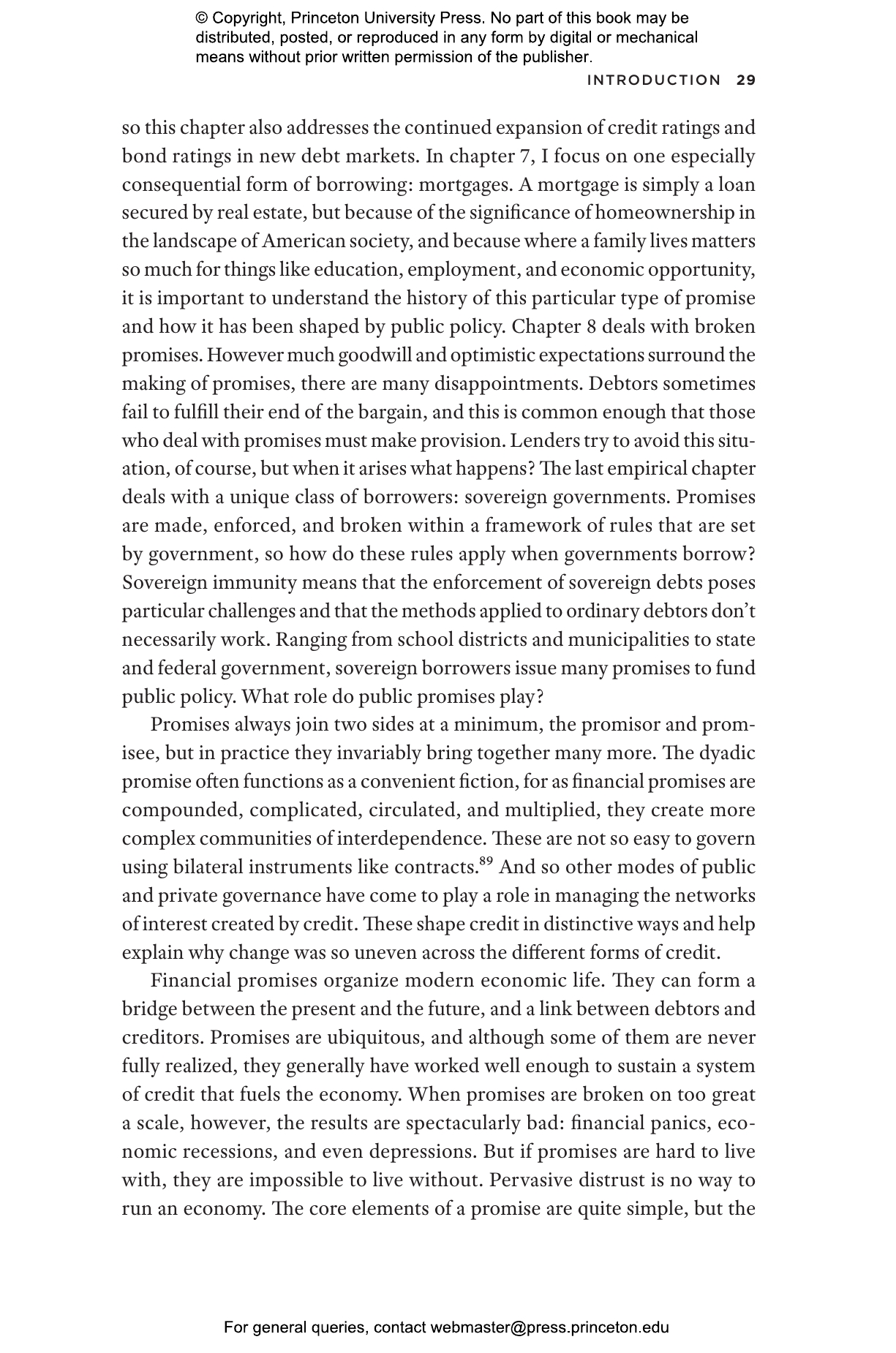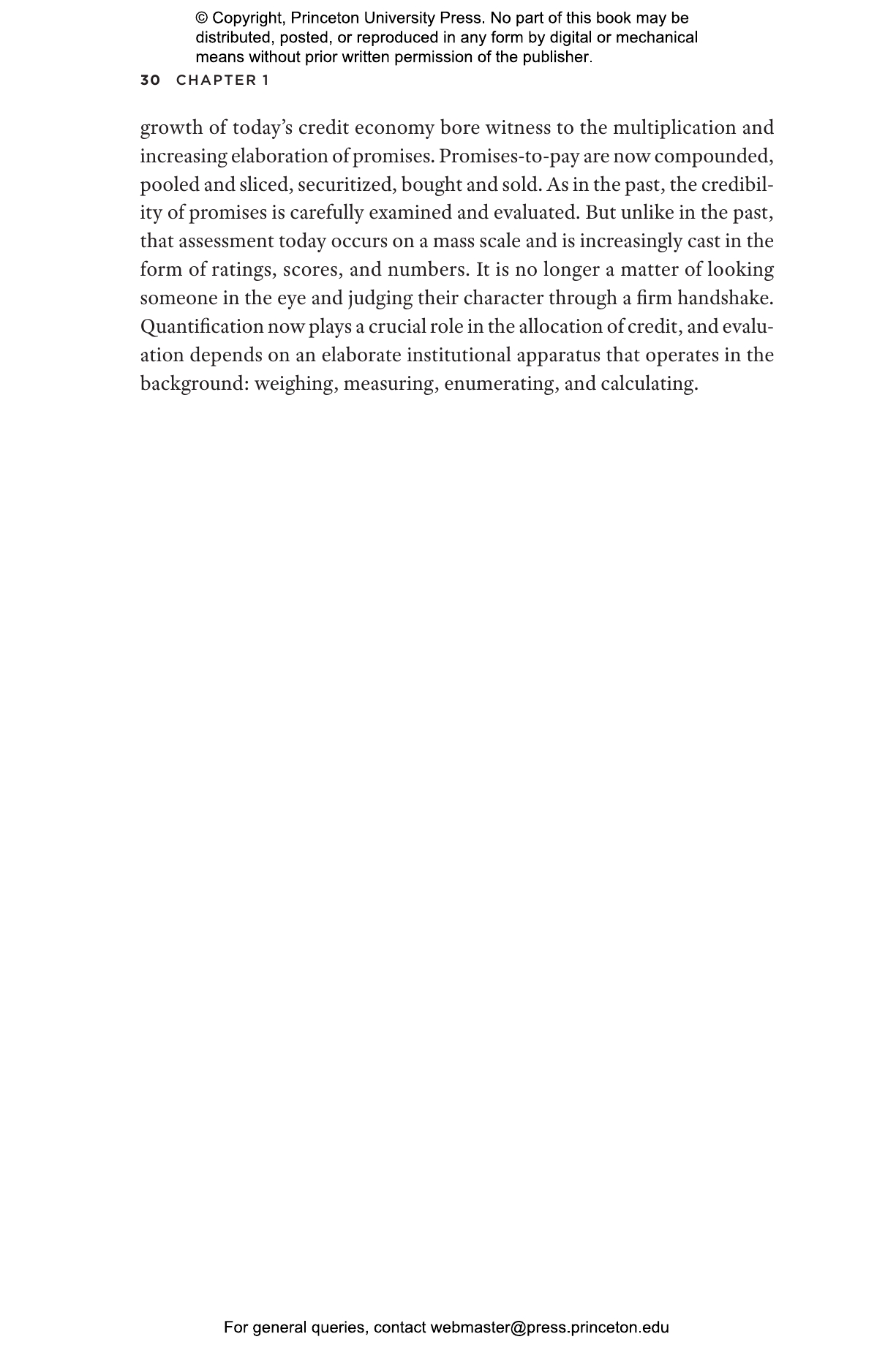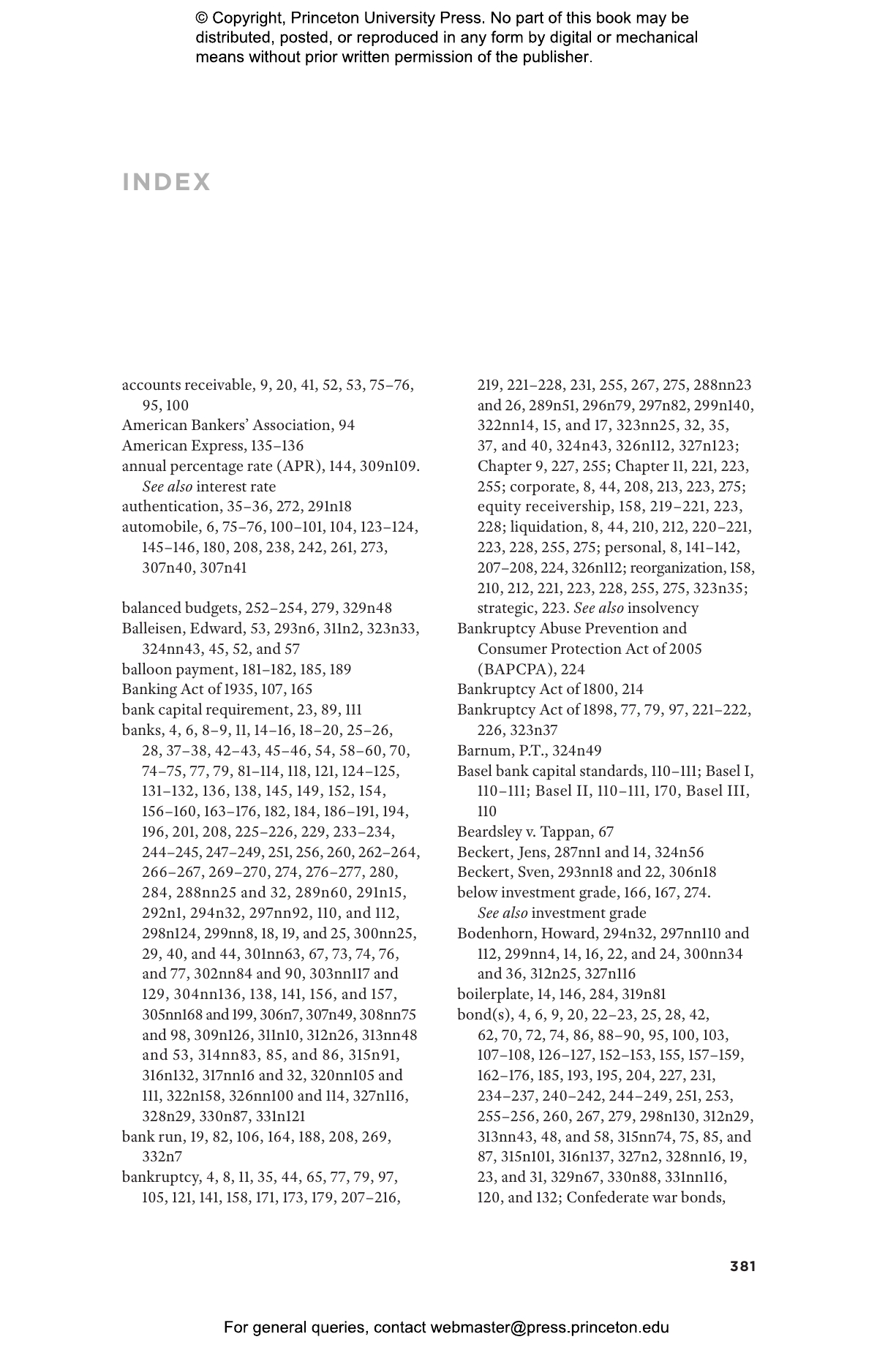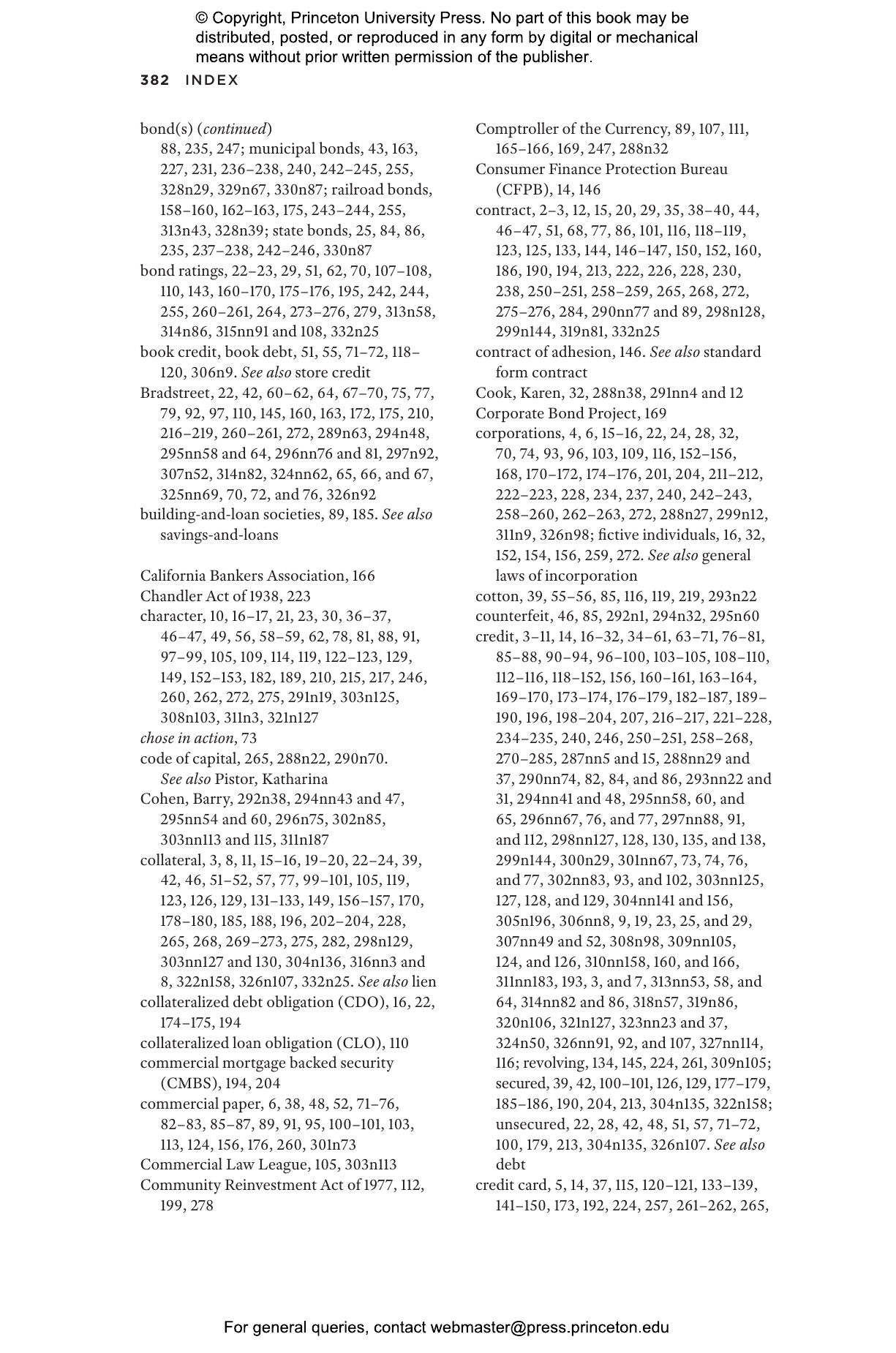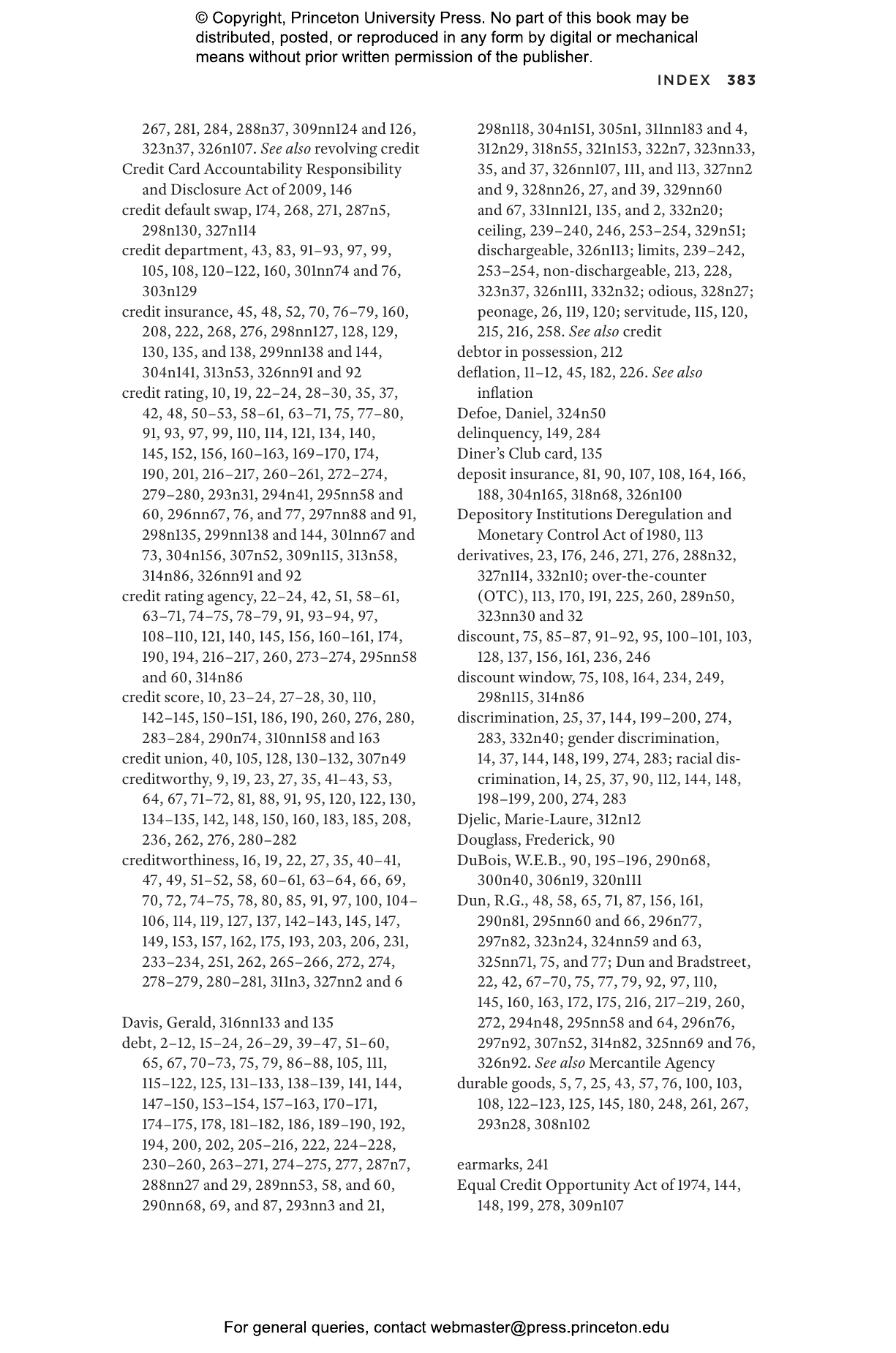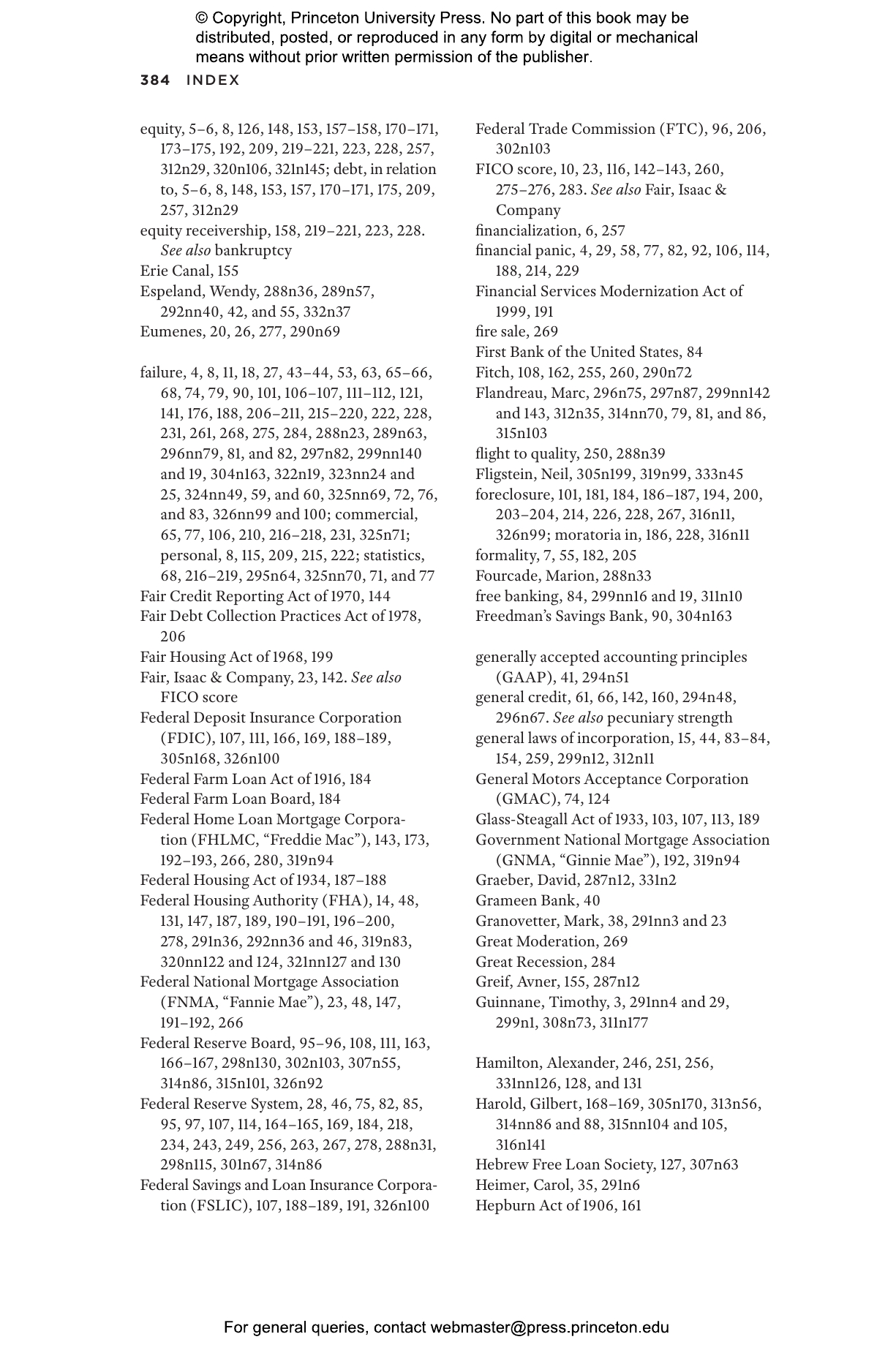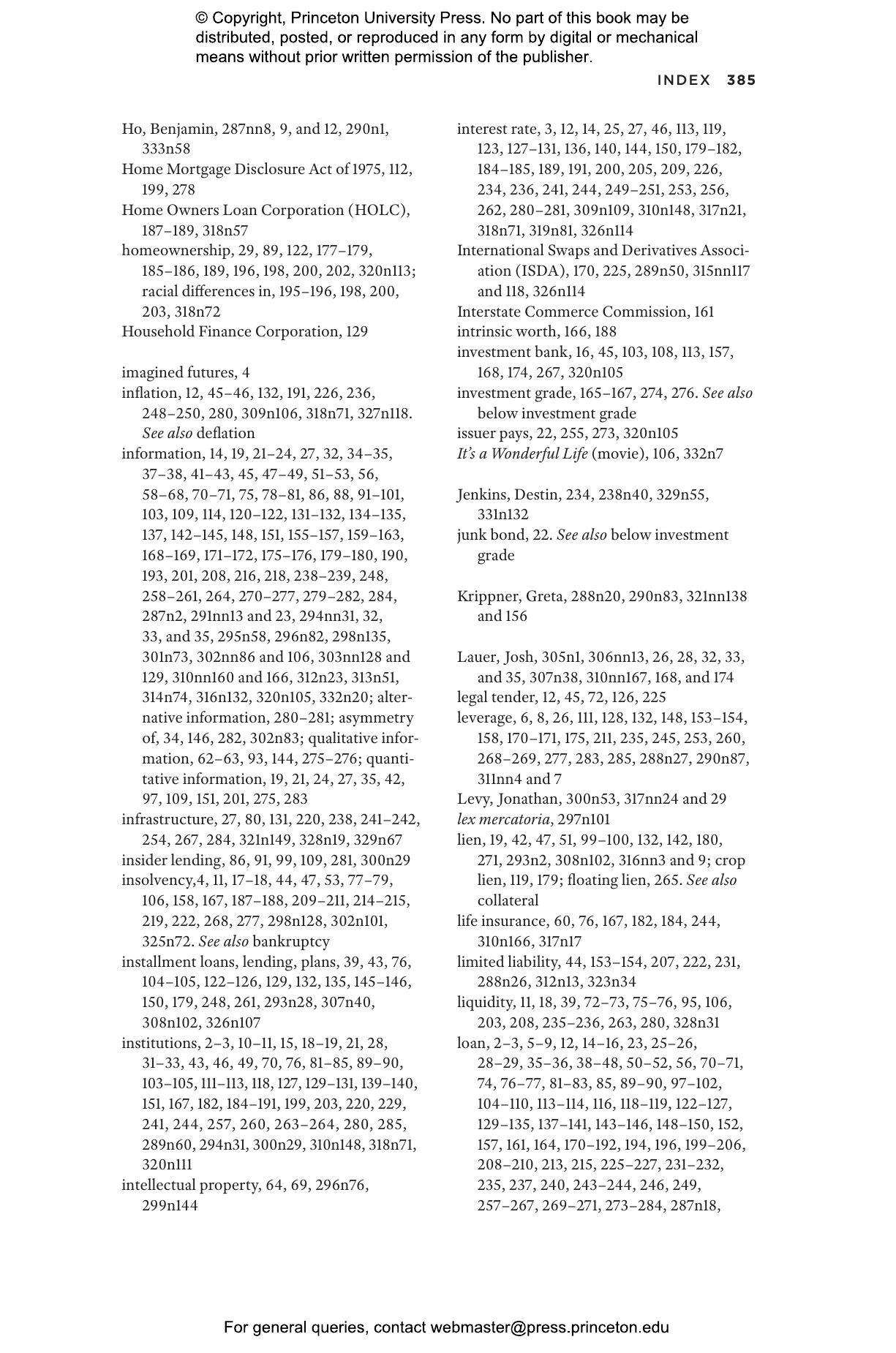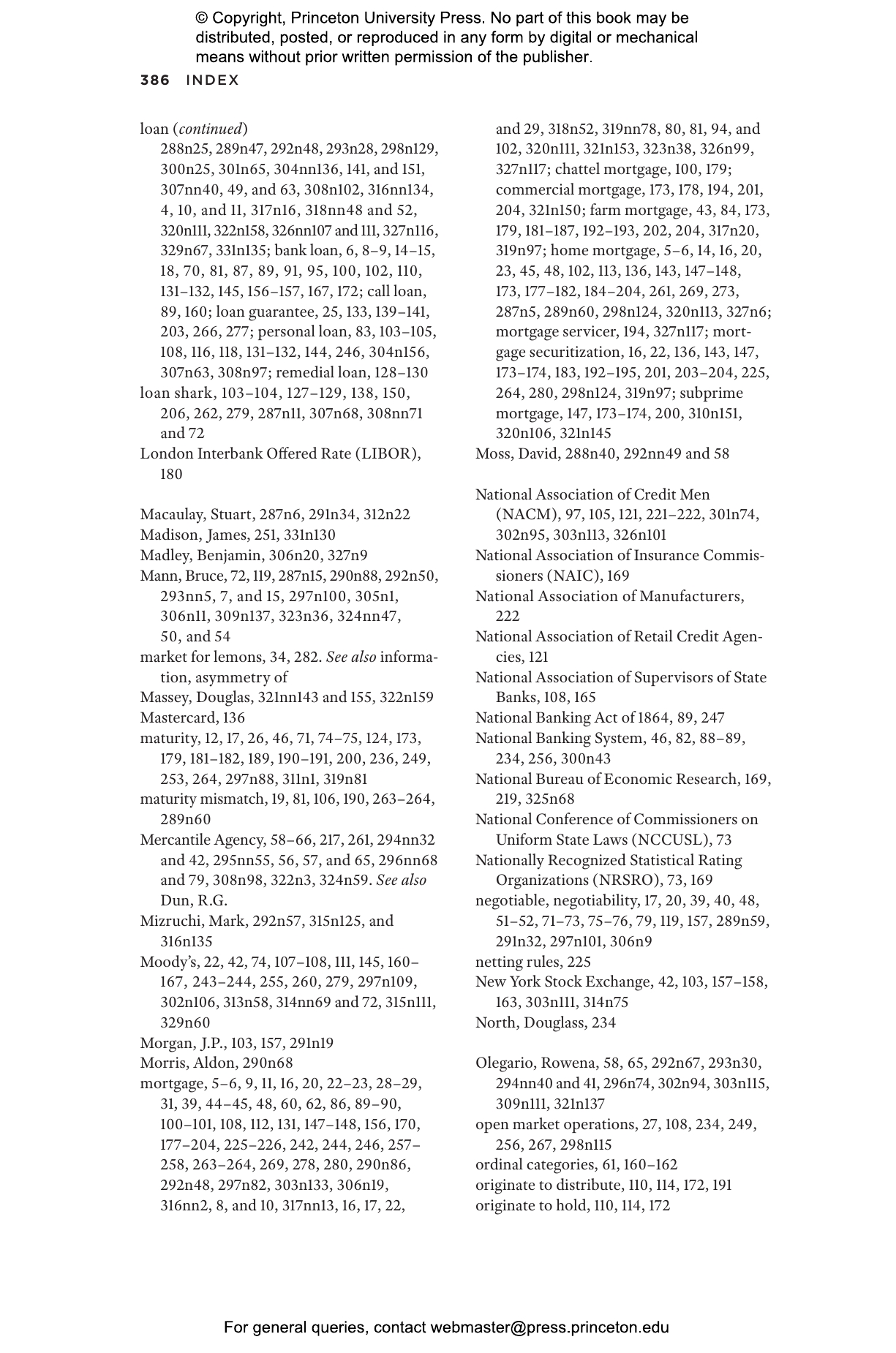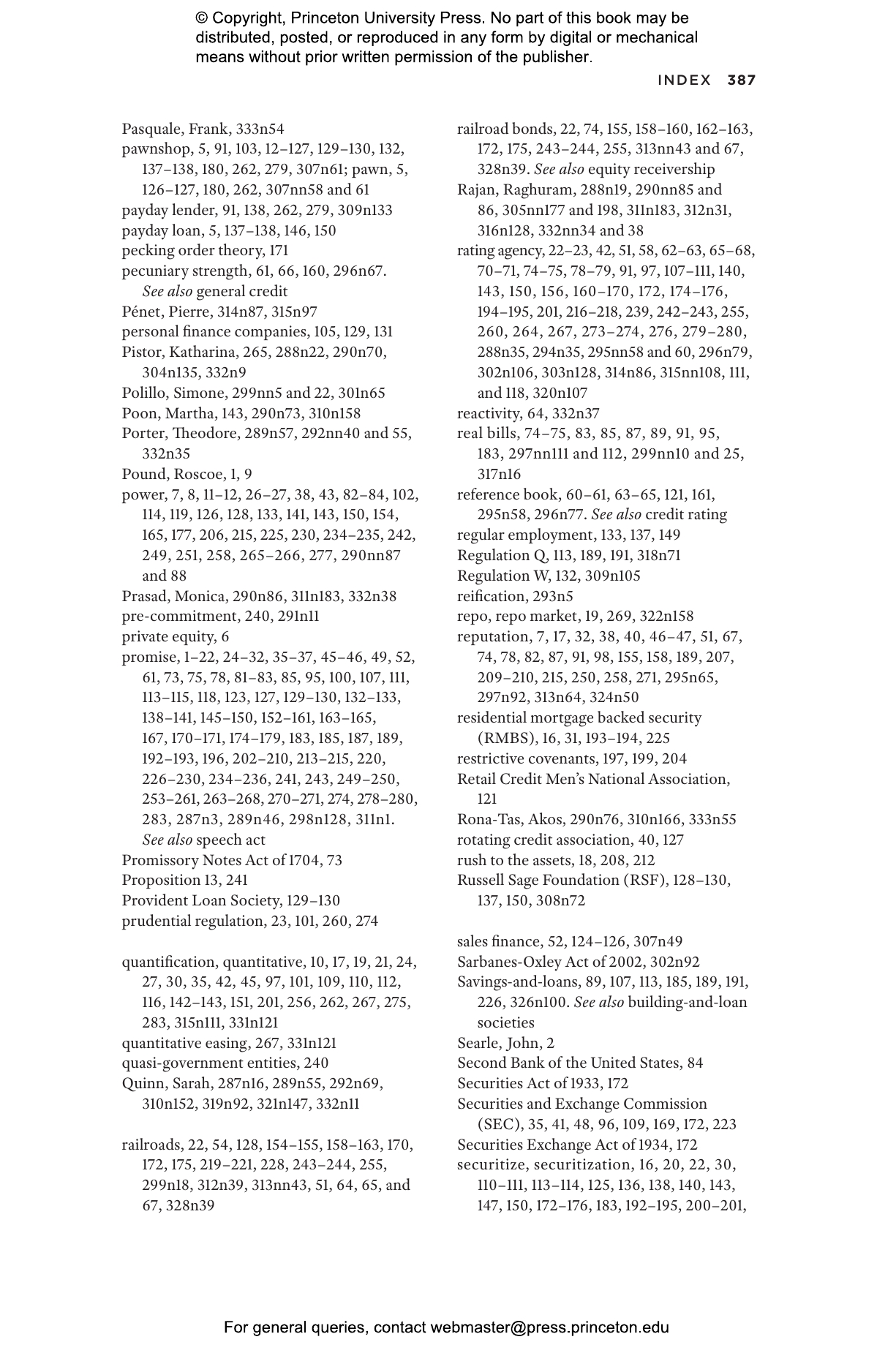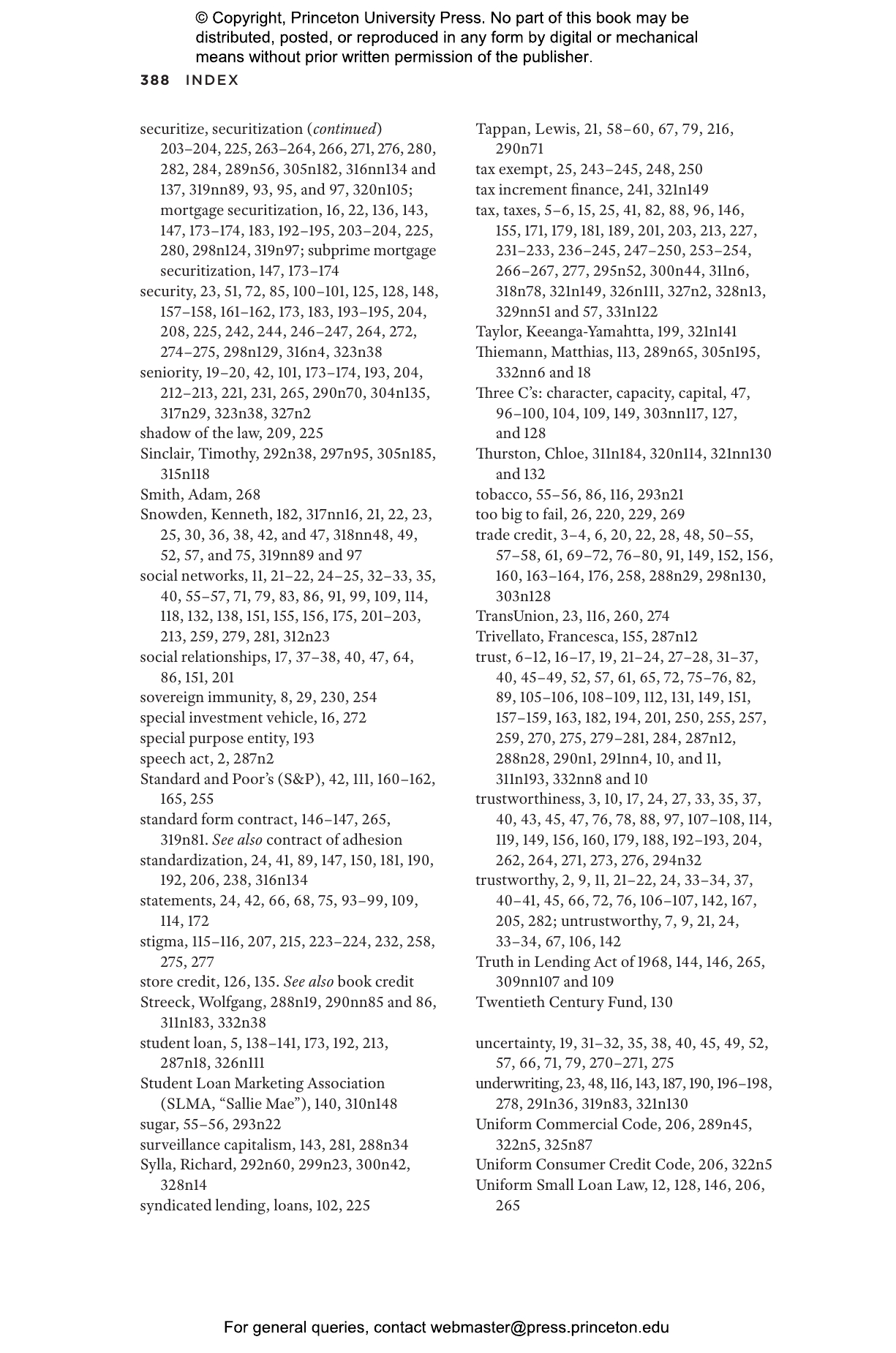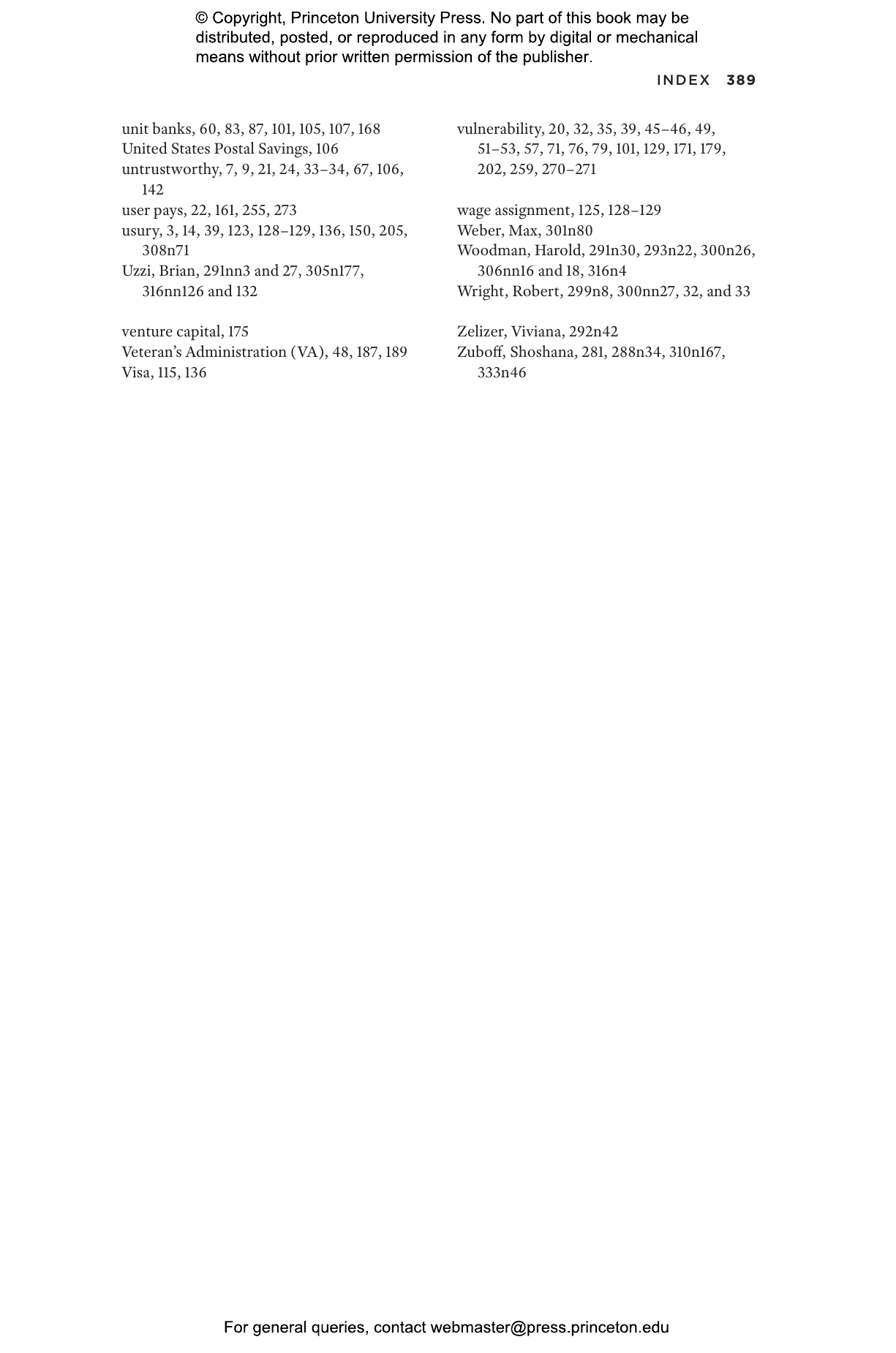The Economy of Promises is a far-reaching study of credit in nineteenth- and twentieth-century America. Synthesizing and surveying economic and social history, Bruce Carruthers examines how issues of trust stitch together the modern U.S. economy. In the case of credit, that trust involves a commitment by debtors to repay money they have borrowed from lenders. Each promise poses a fundamental question: why does the lender trust the borrower?
The book tracks the dramatic shift from personal qualitative judgments to the impersonal quantitative measurements of credit scores and ratings, which make lending on a much greater scale possible. It discusses how lending is shaped by the shadow of failure, and the possibility that borrowers will break their promises and fail to repay their debts. It reveals how credit markets have been shaped by public policy, regulatory changes, and various political factors. And, crucially, it explains how credit interacts with economic inequality, contributing to vast and enduring racial and gender differences—which are only exacerbated by the widespread use of credit scores and ratings for “big data” and algorithmic decision-making.
Bringing to life the complicated and abstract terrain of human interaction we call the economy, The Economy of Promises is an important study of the tangle of indebtedness that, for better or worse, shapes and defines American lives.
Bruce G. Carruthers is the John D. MacArthur Professor of Sociology at Northwestern University. He is the author of City of Capital: Politics and Markets in the English Financial Revolution (Princeton) and the coauthor of, among other books, Money and Credit: A Sociological Approach and Bankrupt: Global Lawmaking and Systemic Financial Crisis.
"The Economy of Promises is a model of good social science history. . . . Regardless of your chosen discipline, The Economy of Promises is the best place to start if you want to learn about the evolution of credit in America."—Bradley Hansen, EH.net
“In his magisterial sociology and history of credit, the grease of the modern economy, Bruce Carruthers recounts how early dry goods merchants and, later, investment banks displayed their own trustworthiness and judged that of others. A tour de force in the analysis of trust, and of promises kept and broken.”—Frank Dobbin, author of Inventing Equal Opportunity
“What does it mean to make a promise? With this deceptively simple question, Bruce Carruthers invites us into the vast and beguiling world of credit, showing how the nature of the promises we make, keep, and sometimes break has been transformed as credit decisions, which were once based on personal relationships, have evolved and now depend on increasingly quantified forms of knowledge. Meticulously researched and lucidly written, The Economy of Promises is the definitive account of our credit-based economy.”—Greta R. Krippner, University of Michigan
“Bruce Carruthers has given us a masterpiece in The Economy of Promises, an analysis of how credit markets developed over the centuries, how lenders evaluate the trustworthiness of borrowers, and what happens when borrowers renege on their promises to repay. This is a fascinating story of the one of the principal pillars of any capitalist economy.”—John L. Campbell, coauthor of What Capitalism Needs: Forgotten Lessons of Great Economists
“The Economy of Promises deftly guides readers through the major innovations and institutions that make U.S. credit markets tick, from the ratings that determine who gets a loan to the bankruptcy rules that decide which loans can be forgiven. With revealing examples and crystal-clear analysis, Carruthers conveys the breadth of social work that goes into making lending possible. This insight-packed tour of credit in America will appeal to experts and newcomers alike.”—Sarah L. Quinn, author of American Bonds: How Credit Markets Shaped a Nation
